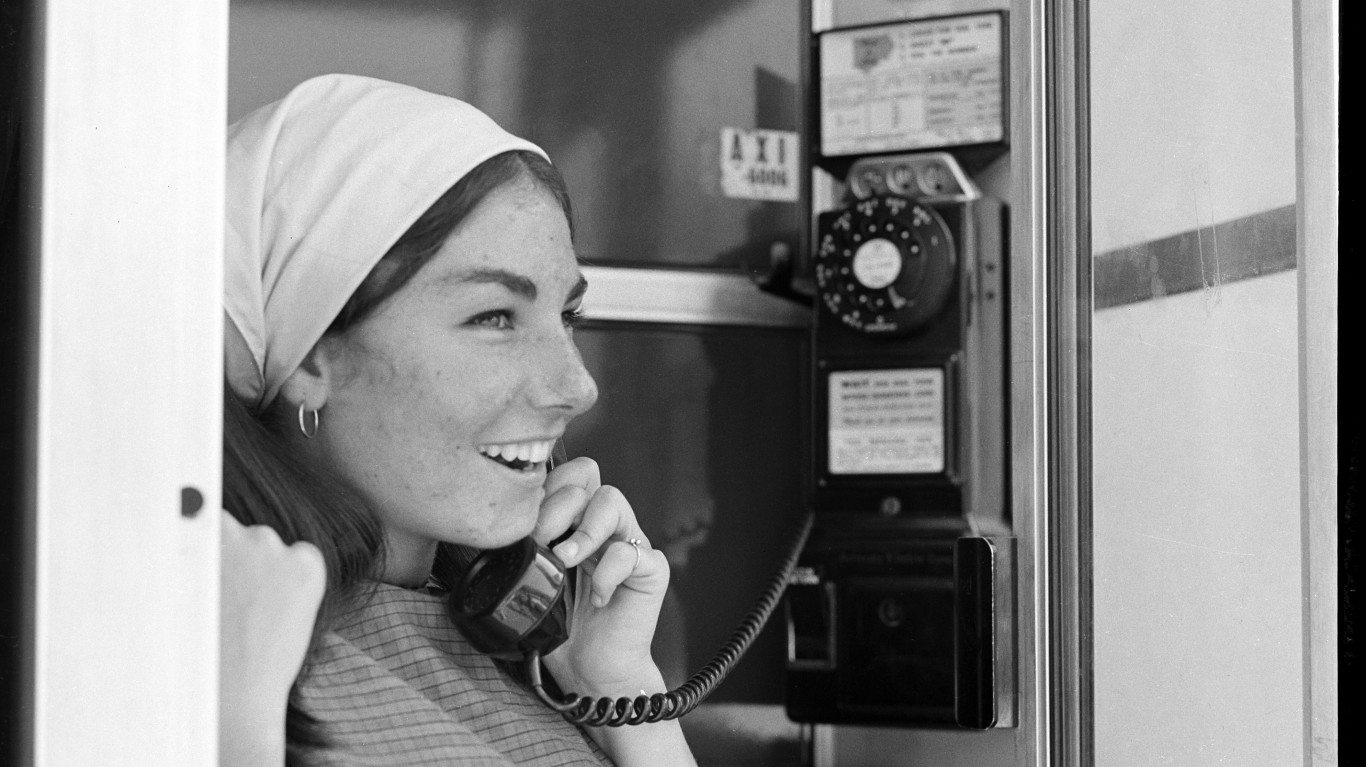
Phones have gone from an exciting new invention, to a must-have household appliance, to an essential part of daily life. A Pew Research Center survey found that 97% of Americans own a cell phone of some kind, and 85% own a smart phone.
The modern telephone has evolved considerably since its invention in 1876, and each development has altered the way people live and interact with the world. 24/7 Wall St. conducted an extensive review of the phones that represented breakthroughs in the industry. From Alexander Graham Bell’s original telephone to the latest iPhone, these devices represent the hottest phones in history.
Some phones on this list perhaps introduced smaller technological improvements, but because of marketing, design, and timing, they managed to become extremely popular nonetheless. The Nokia 1100, the top-selling phone of all time, capitalized on a simple, cheap design and emerging global markets to sell more than 250 million units worldwide between 2003 and 2009.
Still other phones represented such marked improvements over the existing technology at the time that they became widely adopted and used for years. The original iPhone implemented a simple touchscreen design and forever changed the smartphone standard, while also selling millions of devices within the year.
The vast majority of these devices have been discontinued long ago, and despite once being wildly popular, many can only be found today in the hands of collectors or in landfills. Here is a list of once popular cell phones and smart phones that no longer exist.
Some early Bell phones on this list may not have been widely owned, but they represent breakthroughs. At the time, these phones changed the way people lived, as the advent of the cell phone would come decades later. Here is a list of technologies that will change the way we live life in the future.
Click here to see the hottest phones of all time
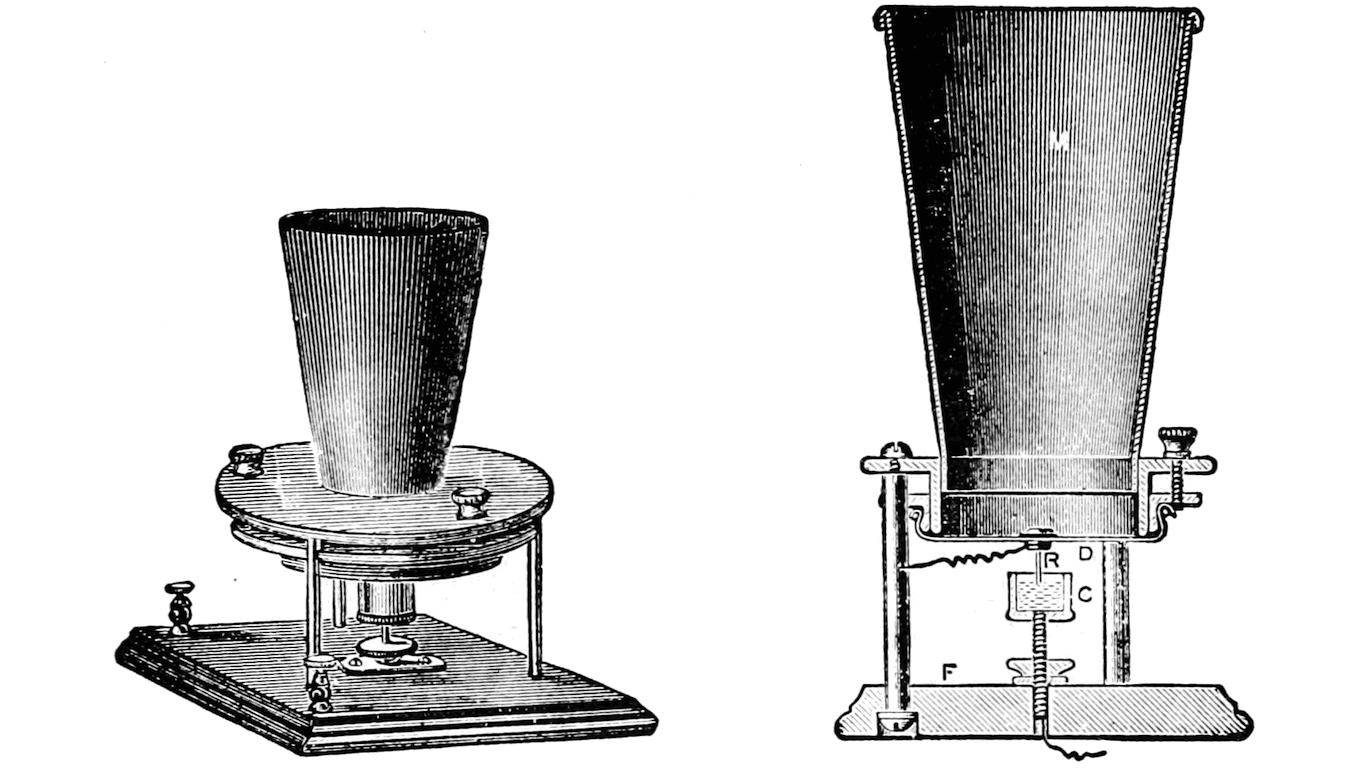
1. Bell Liquid Telephone
> Manufacturer: Alexander Graham Bell
> Release year: 1876
After successfully completing the liquid telephone on March 10, 1876 following two years of experimentation, Alexander Graham Bell spoke the first words ever transmitted over phone: “Mr. Watson, come here. I want to see you!”
[in-text-ad]
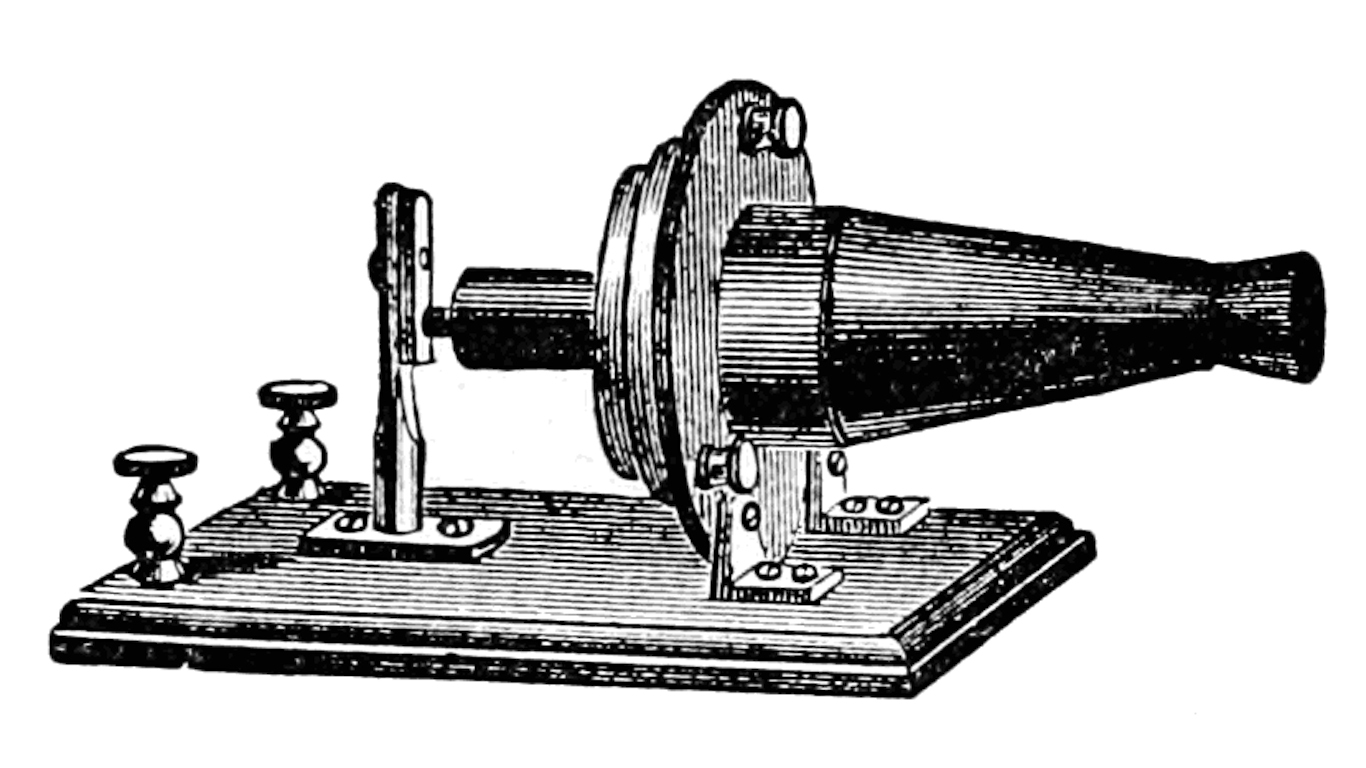
2. Bell’s Centennial Telephone
> Manufacturer: Alexander Graham Bell
> Release year: 1876
At the Centennial Exposition in Philadelphia, Bell introduced this telephone to visitors from around the world.
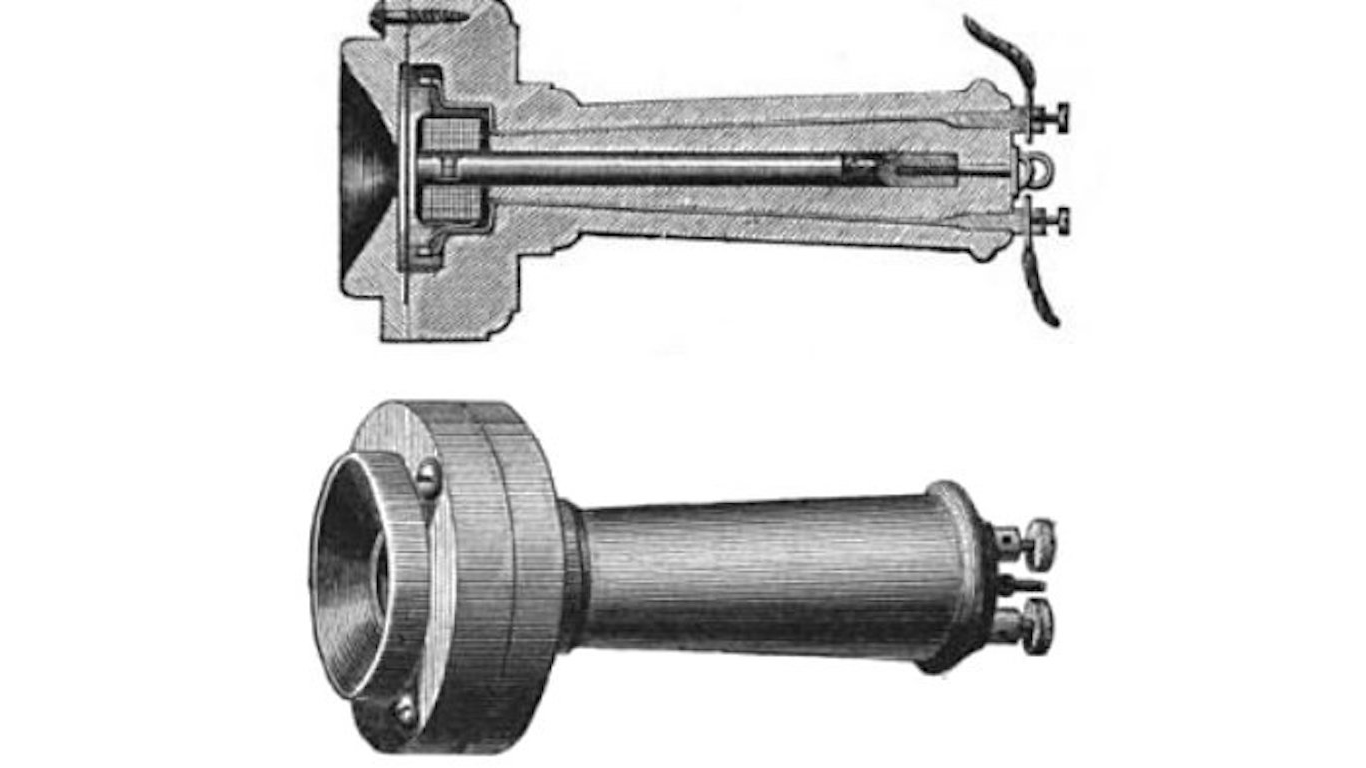
3. Butterstamp
> Manufacturer: Bell Telephone Company
> Release year: 1878
The first phone with both a receiver and transmitter that could be held in one hand, the butterstamp, was designed in 1877 and put into operation in 1878.
4. Wall Set
> Manufacturer: Bell Telephone Company
> Release year: 1878
While the butterstamp required users to move one receiver from mouth to ear, later wall sets had separate apparatuses for speaking and receiving.
[in-text-ad-2]
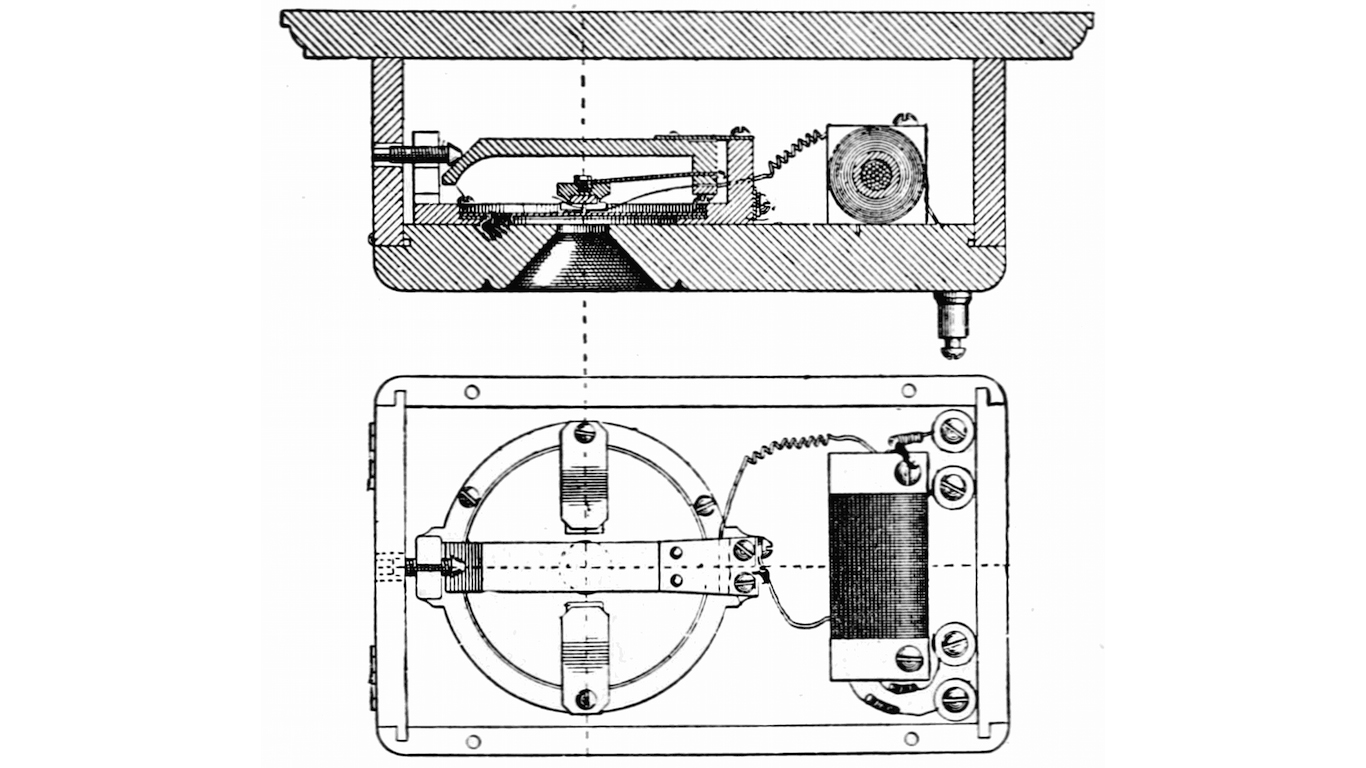
5. Blake Transmitter
> Manufacturer: Bell Telephone Company
> Release year: 1880
Inspired by Bell’s invention at the Centennial Exhibition, inventor Francis Blake manufactured a transmitter made of carbon that improved voice clarity.

6. Magneto Wall Set
> Manufacturer: Western Electric
> Release year: 1882
The Magneto Wall Set, which would become a popular model in homes for years, combined the powerful Blake transmitter with the hand receiver used in Bell’s wall set.
[in-text-ad]
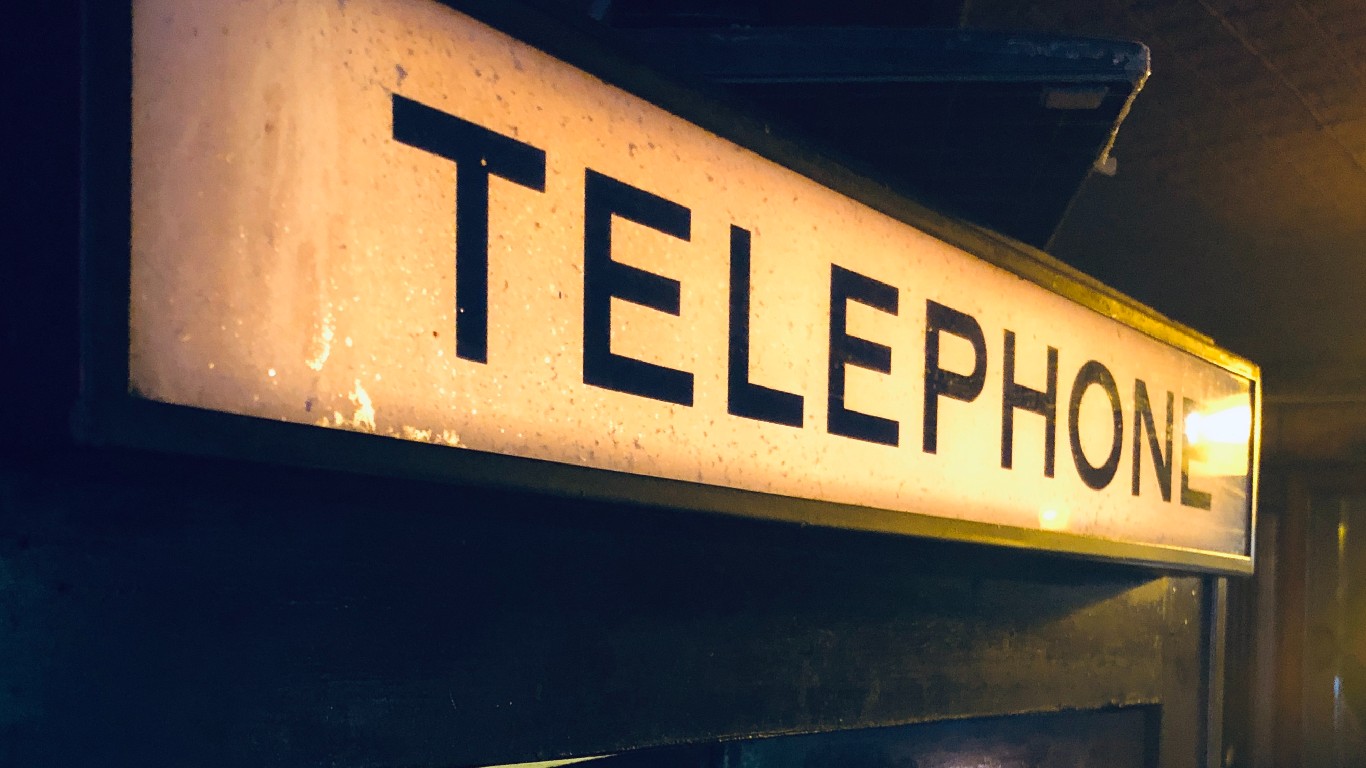
7. Telephone Pay Station
> Manufacturer: Gray Telephone Pay Station Company
> Release year: 1889
Within 13 years of introducing the first coin-operated public telephone, 81,000 such phones were installed across the country.

8. Common Battery Phone
> Manufacturer: Bell Telephone Company
> Release year: 1900
After a number of improvements to devices used to power the phone, the common battery phone obtained power through the phone line rather than a local battery.

9. 20B
> Manufacturer: Western Electric
> Release year: 1904
The Western Electric 20B, introduced in 1904, was one of the first “candlestick” desk stand phones.
[in-text-ad-2]

10. 50-A
> Manufacturer: Western Electric
> Release year: 1911
With the invention of the coin return, customers no longer needed exact change to avoid overspending on their long-distance phone calls.
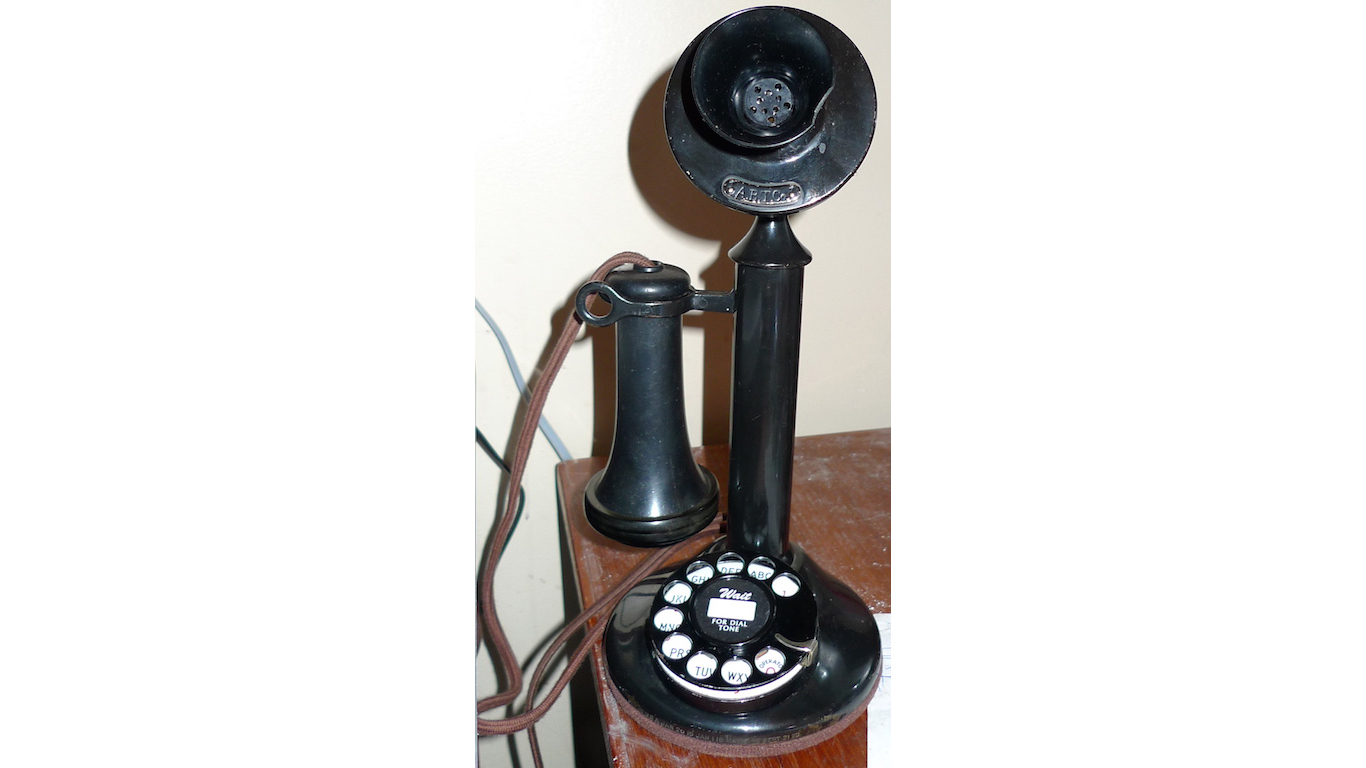
11. 50AL
> Manufacturer: Western Electric
> Release year: 1919
Rotary or dial phones were invented in the 1890s but did not become popular for several decades. The Western Electric 50AL was one of the first to use dial technology that required no operator assistance.
[in-text-ad]

12. 300 Type Desk Set
> Manufacturer: Western Electric
> Release year: 1937
The 300 type desk set phone was the first to include the bell and circuitry in the base of the unit, a convenience that made the phone widely popular.
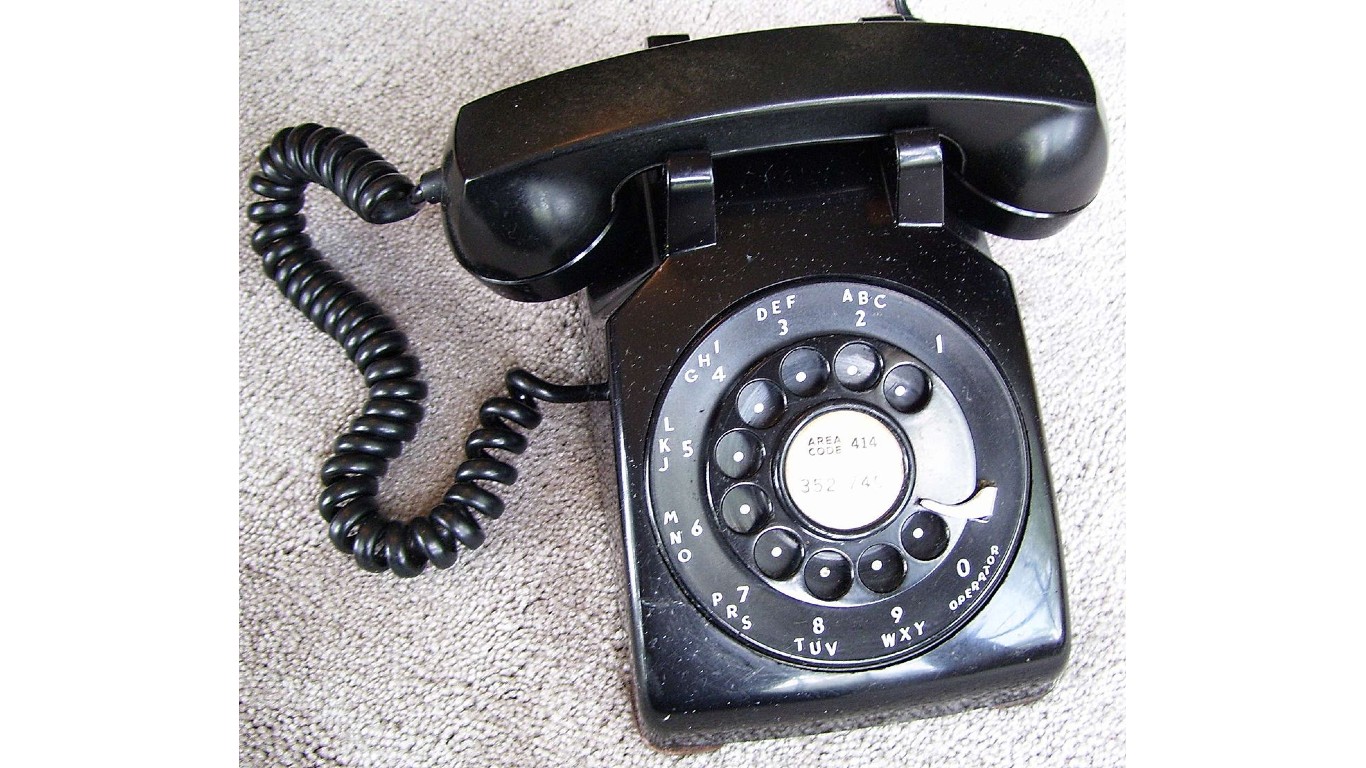
13. 500 Type Desk Set
> Manufacturer: Bell Telephone Company
> Release year: 1949
After World War II, the Bell Telephone Company refocused on consumer products with the 500 type desk set phones, which came with improved voice clarity and adjustable volume control.

14. 554 Type Desk Set
> Manufacturer: Western Electric
> Release year: 1955
A variant of the 500 model desk set, the 554 became one of the most popular models of wall-mounted rotary phones.
[in-text-ad-2]

15. Princess Telephone
> Manufacturer: Western Electric
> Release year: 1959
The small size and attractive design made the Princess phone a popular household choice as a second phone to be used in bedrooms. As an added bonus, the phone had an illuminated dial.

16. Model 1500
> Manufacturer: Western Electric
> Release year: 1963
The Western Electric Model 1500 was the first phone to feature touch-tone dialing instead of a rotary dial. The new feature allowed for more efficient calls and phone menu navigation.
[in-text-ad]
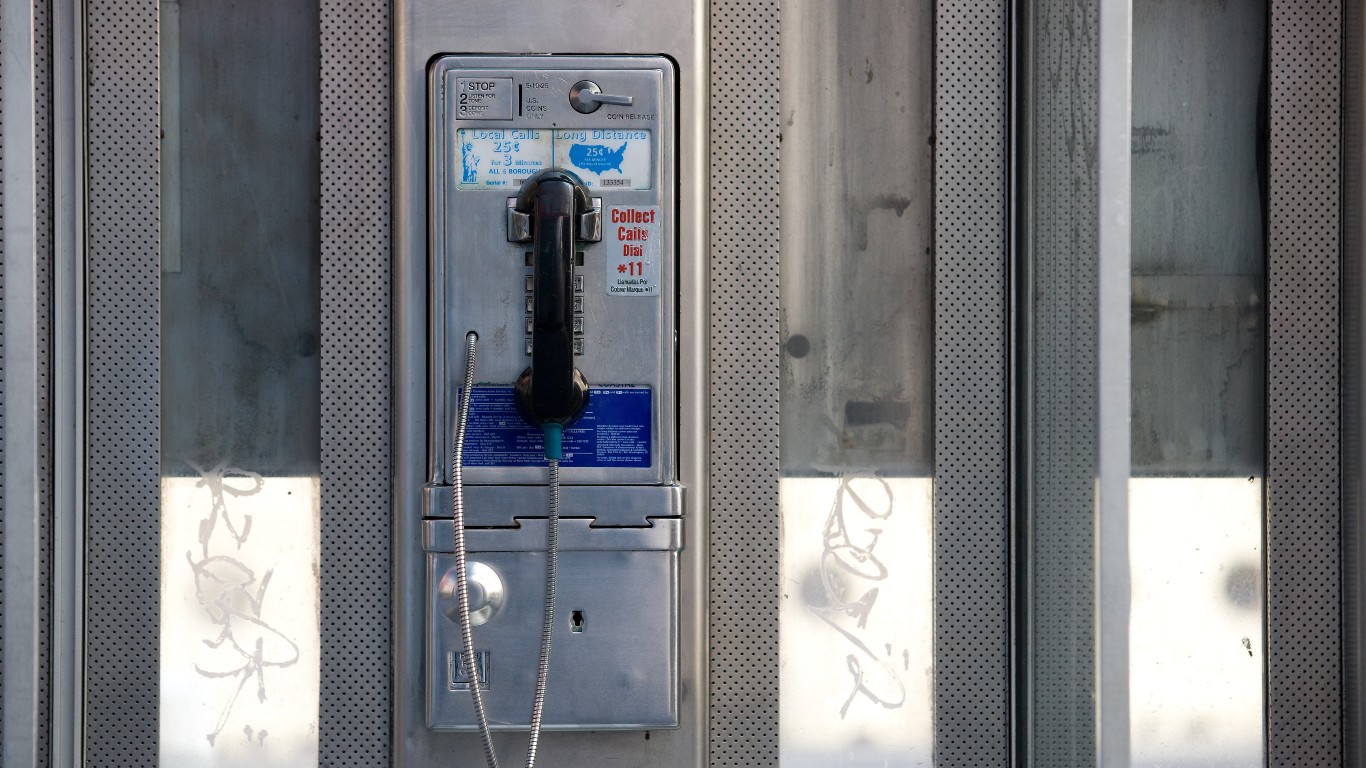
17. 1A1 Public Telephone
> Manufacturer: AT&T
> Release year: 1965
AT&T introduced the 1A1 pay telephone in 1965 as a redesign to phone booth phones. The flat fronted, single-slot, pre-pay public phone’s appearance would not change substantially again before cell phones made pay phones largely obsolete.
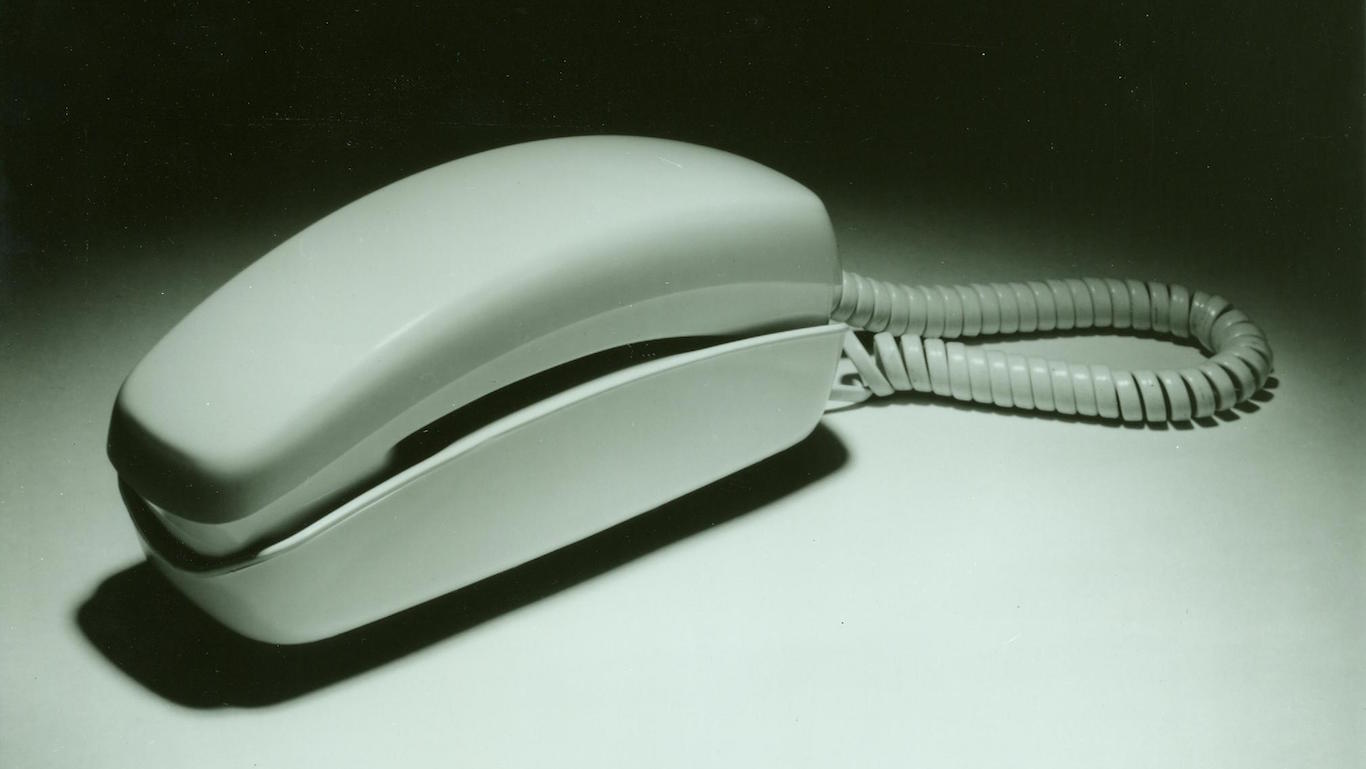
18. Trimline Telephone
> Manufacturer: Western Electric
> Release year: 1968
The Trimline was the first popular phone to incorporate the dial pad within the handset. Updated models of the Trimline phone, first released in 1968, can still be purchased today.
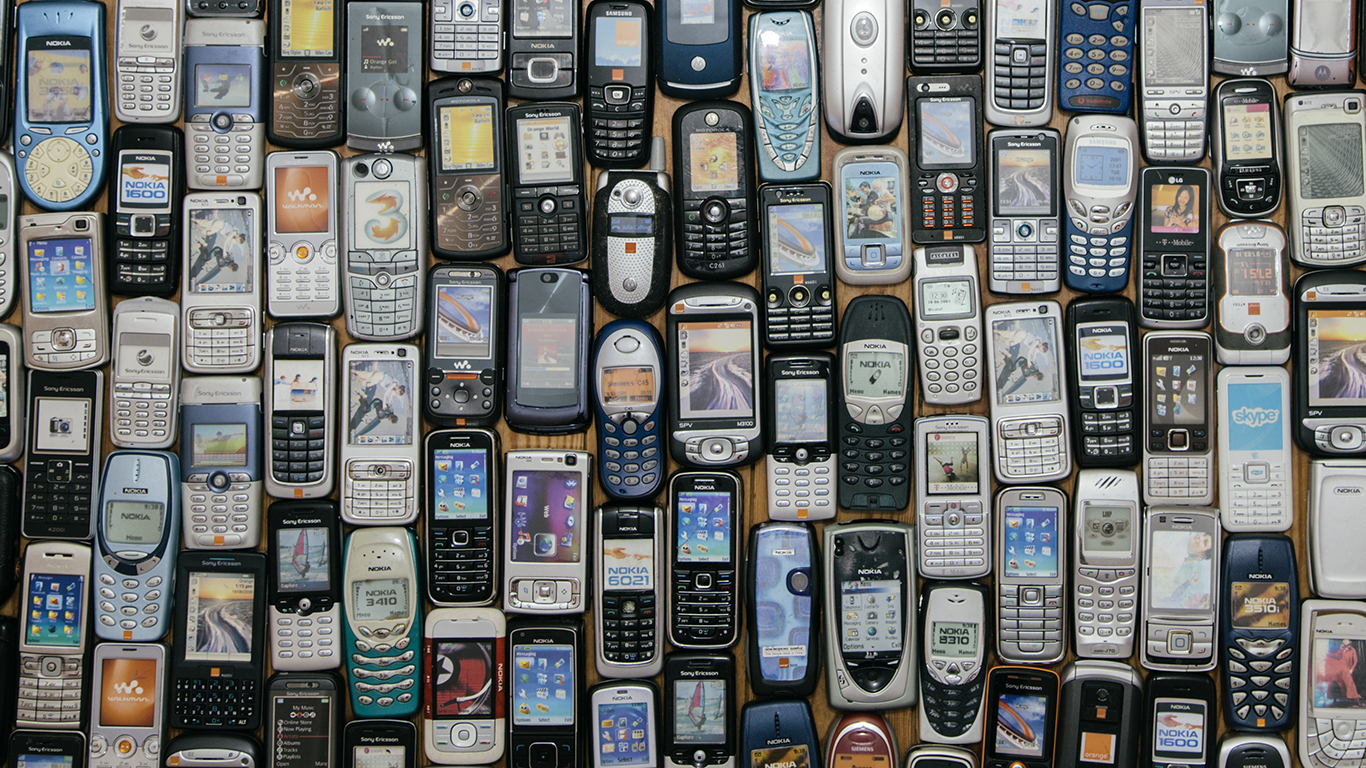
19. GTE Flip Phone
> Manufacturer: Webcor
> Release year: 1983
When cordless phones first hit the market, the narrow frequencies allowed by the FCC caused many users to hear their neighbor’s phone calls. The Webcor 512 — better known as the GTE Flip Phone — was one of the first cordless phones with encoding technology that prevented this problem.
[in-text-ad-2]
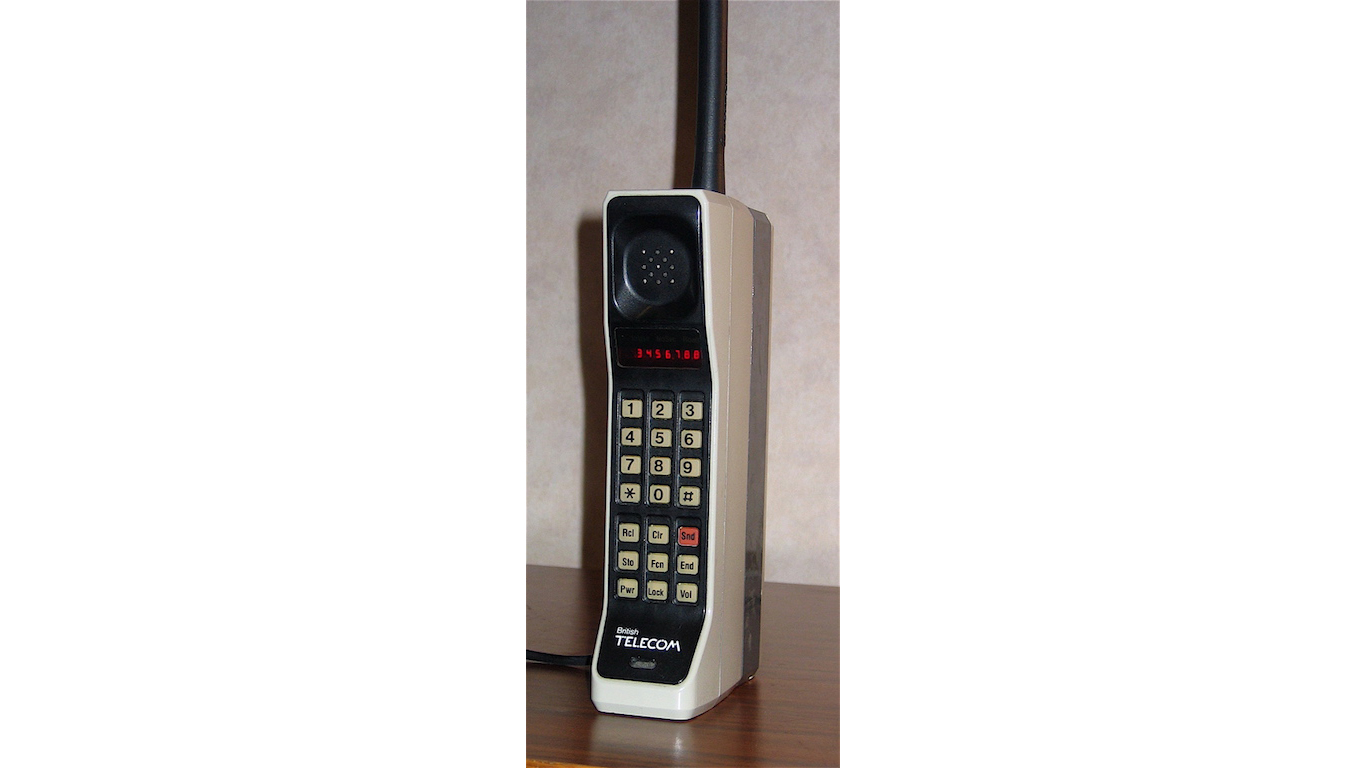
20. DynaTAC 8000X
> Manufacturer: Motorola
> Release year: 1984
The Motorola DynaTAC 8000X was the world’s first cordless mobile phone. Available for $3,995 and with a battery life of 30 minutes, the phone was mostly marketed as a luxury item.

21. Sports Illustrated Football Phone
> Manufacturer: N/A
> Release year: 1987
In 1987, Sports Illustrated began offering phones shaped like footballs as an incentive for purchasing a magazine subscription. The football phone became widely popular and helped the magazine sell around 1.6 million subscriptions in the five years of the promotion.
[in-text-ad]
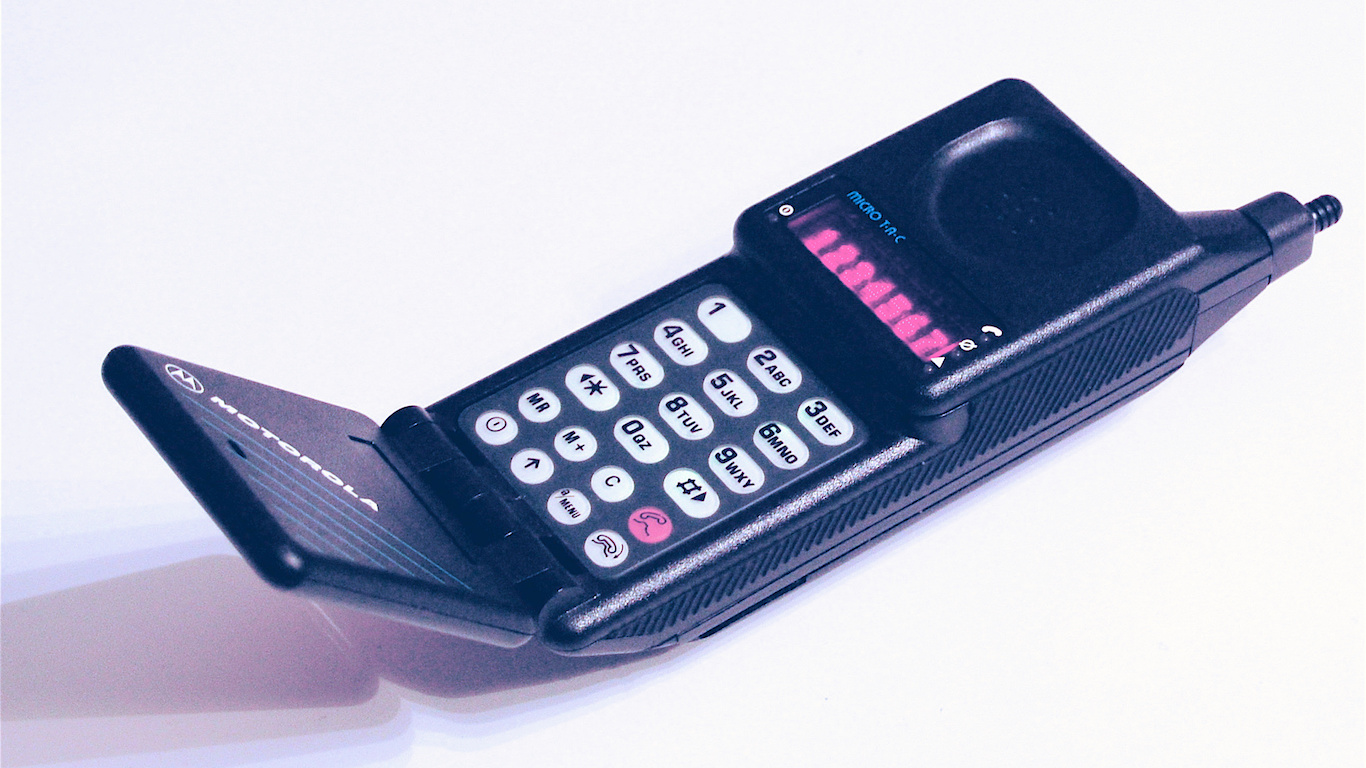
22. MicroTAC 9800X
> Manufacturer: Motorola
> Release year: 1989
At the time of its release, the Motorola MicroTAC 9800X was the smallest, lightest phone on the market. The MicroTAC set the design standard for many of the phones that succeeded it.
23. International 3200
> Manufacturer: Motorola
> Release year: 1992
The Motorola International 3200 was the first digital hand-size mobile telephone.
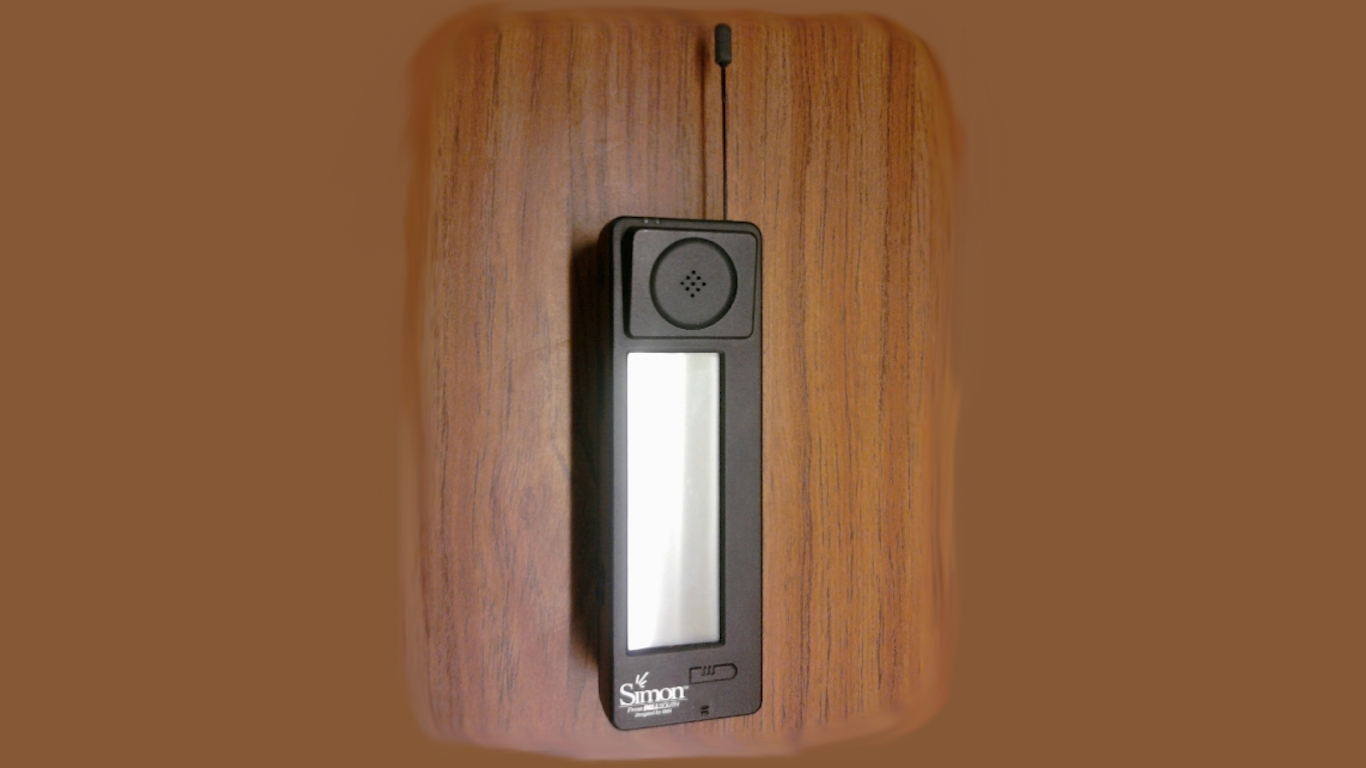
24. Simon
> Manufacturer: IBM / BellSouth
> Release year: 1994
The Simon was perhaps the first smartphone. It had a touchscreen and could be used to send emails and faxes. When it was released, the Simon cost well over $1,000.
[in-text-ad-2]
25. StarTac
> Manufacturer: Motorola
> Release year: 1996
Motorola’s StarTac was one of the first widely sold flip phones.
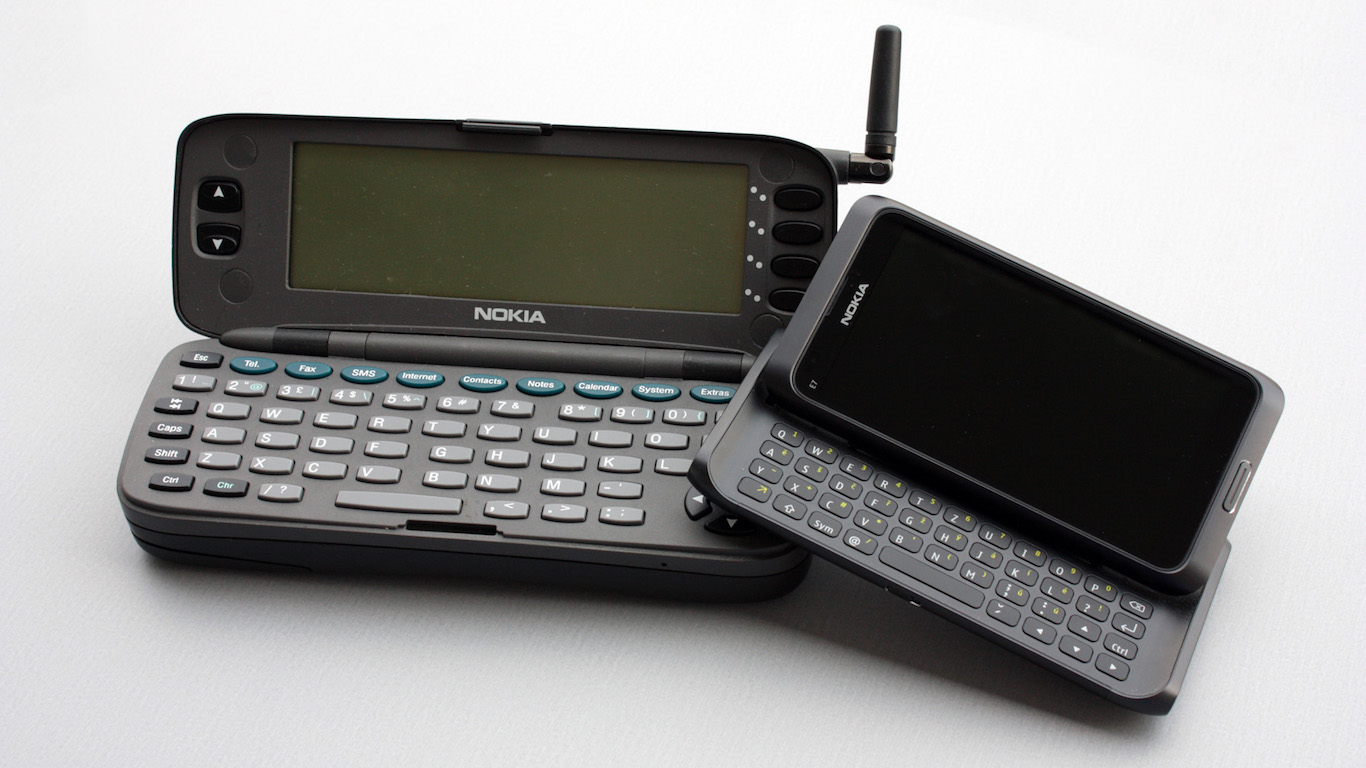
26. 9000i Communicator
> Manufacturer: Nokia
> Release year: 1997
The Nokia 9000i Communicator was one of the first phones that combined email, web browsing, fax, word processing, and spreadsheet capabilities in one cellular device.
[in-text-ad]
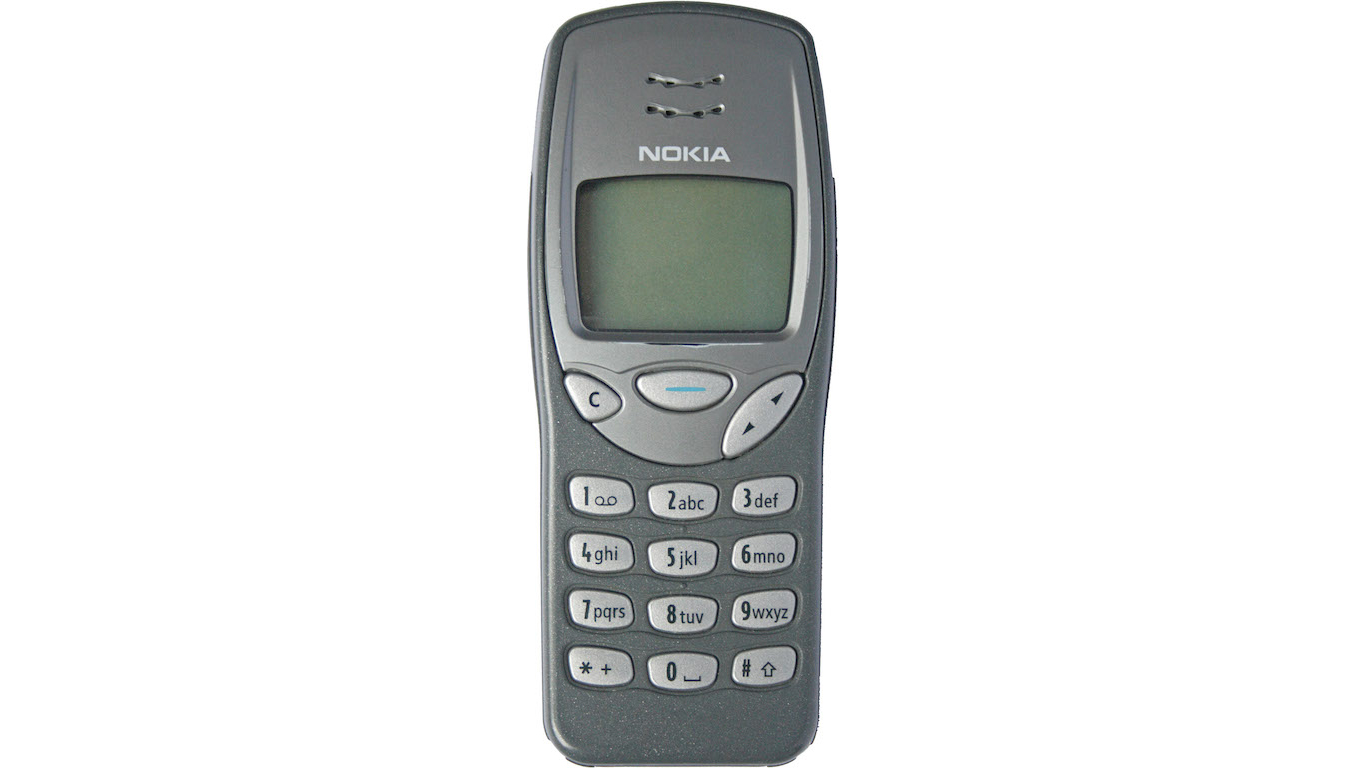
27. 3210
> Manufacturer: Nokia
> Release year: 1999
Long battery life, durability, and pre-installed cell phone games were a few reasons for the Nokia 3210’s success. The phone became the third best-selling phone in history.
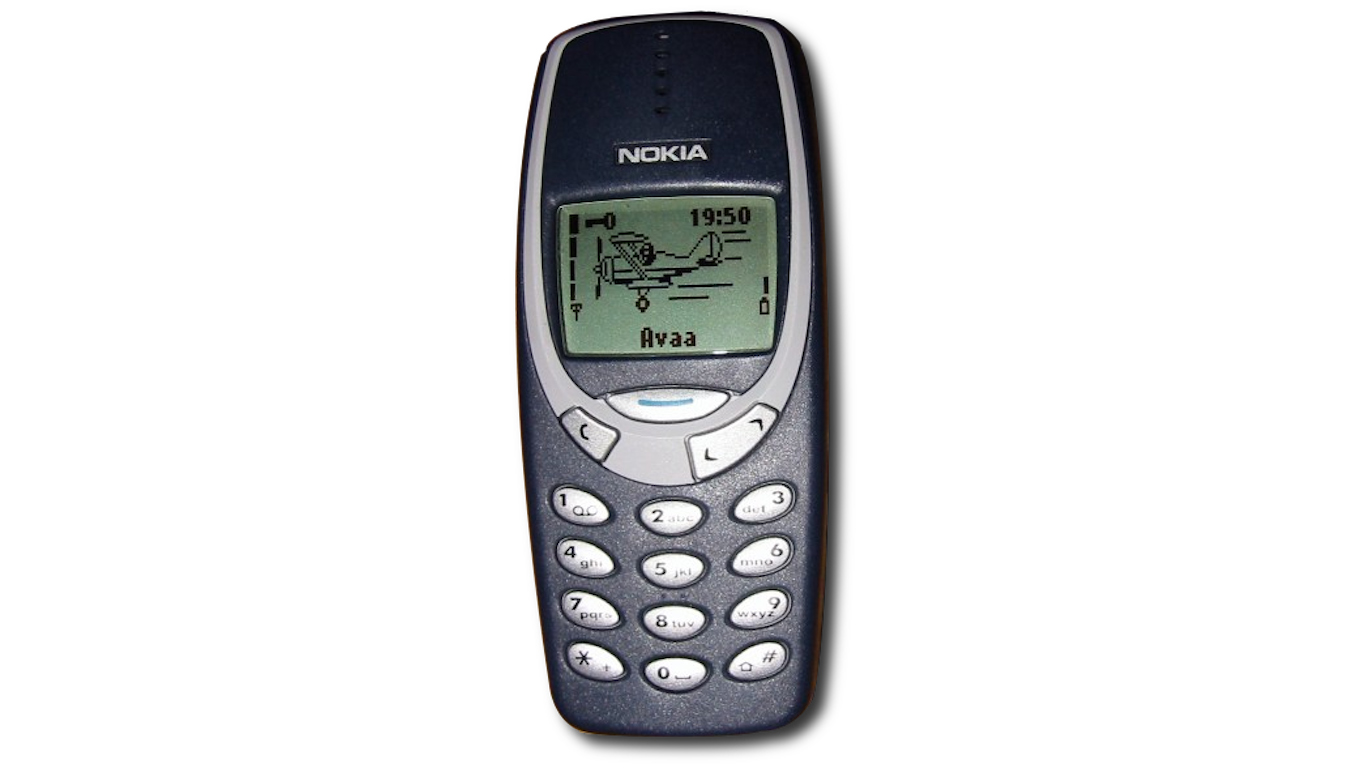
28. 3310
> Manufacturer: Nokia
> Release year: 2000
The 3310 was one of several budget phones manufactured by Nokia. The phone’s simple features and affordability made it one of the best-selling cellular devices in history.
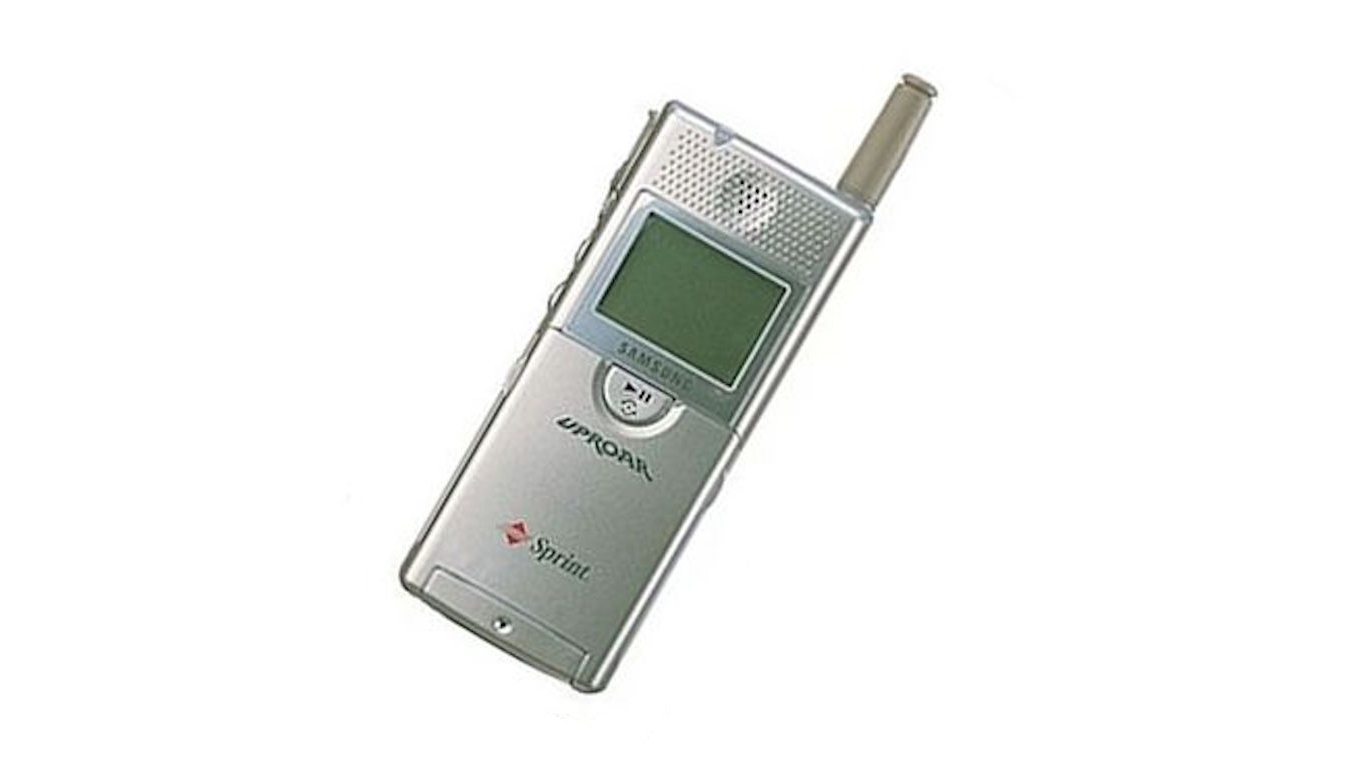
29. Uproar
> Manufacturer: Samsung
> Release year: 2001
The first cell phone with MP3 capabilities, the Samsung Uproar could hold about an hour of music.
[in-text-ad-2]
30. Sanyo SCP-5300
> Manufacturer: Sprint
> Release year: 2002
The Sanyo SCP-5300 was the first cell phone to combine a built-in camera that had a 0.3-megapixel capability. By comparison, the latest iPhone has a 12-megapixel capability.
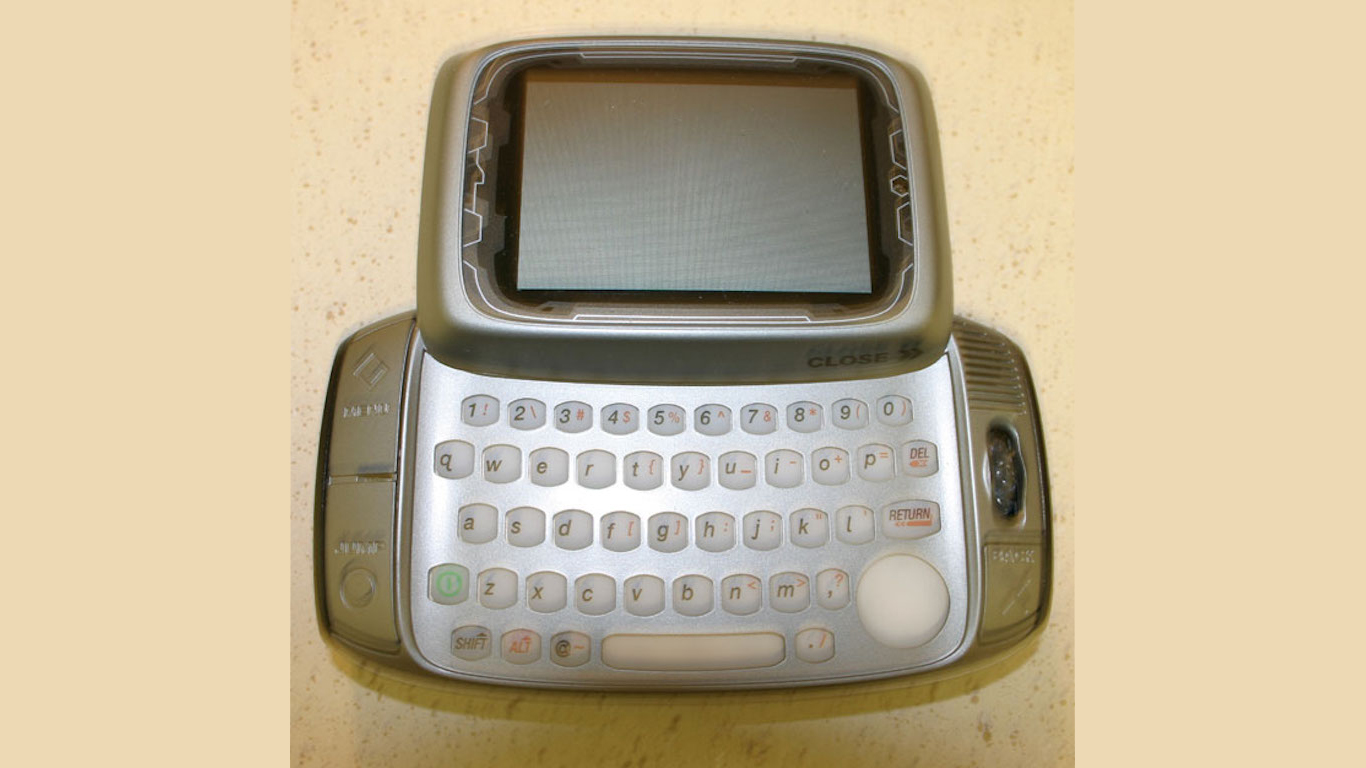
31. T-Mobile Sidekick
> Manufacturer: Danger Incorporated
> Release year: 2002
With AIM messaging, a QWERTY keyboard, and stylish design, the T-Mobile Sidekick — originally known as the Danger Hiptop — appealed to younger consumers.
[in-text-ad]
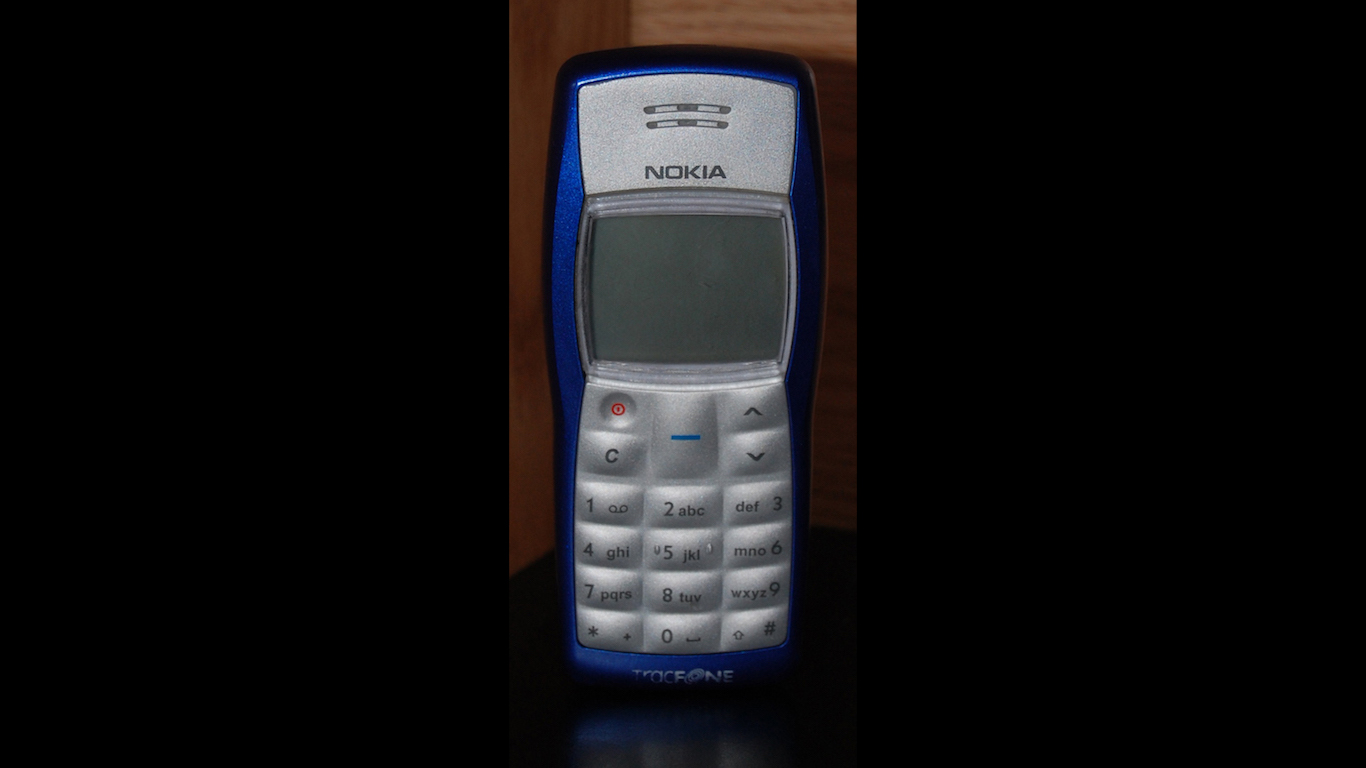
32. 1100
> Manufacturer: Nokia
> Release year: 2003
The Nokia 1100, one of the Finnish maker’s many no-frills phones to be successful abroad, sold an estimated 250 million units worldwide, more than any other mobile phone in history.
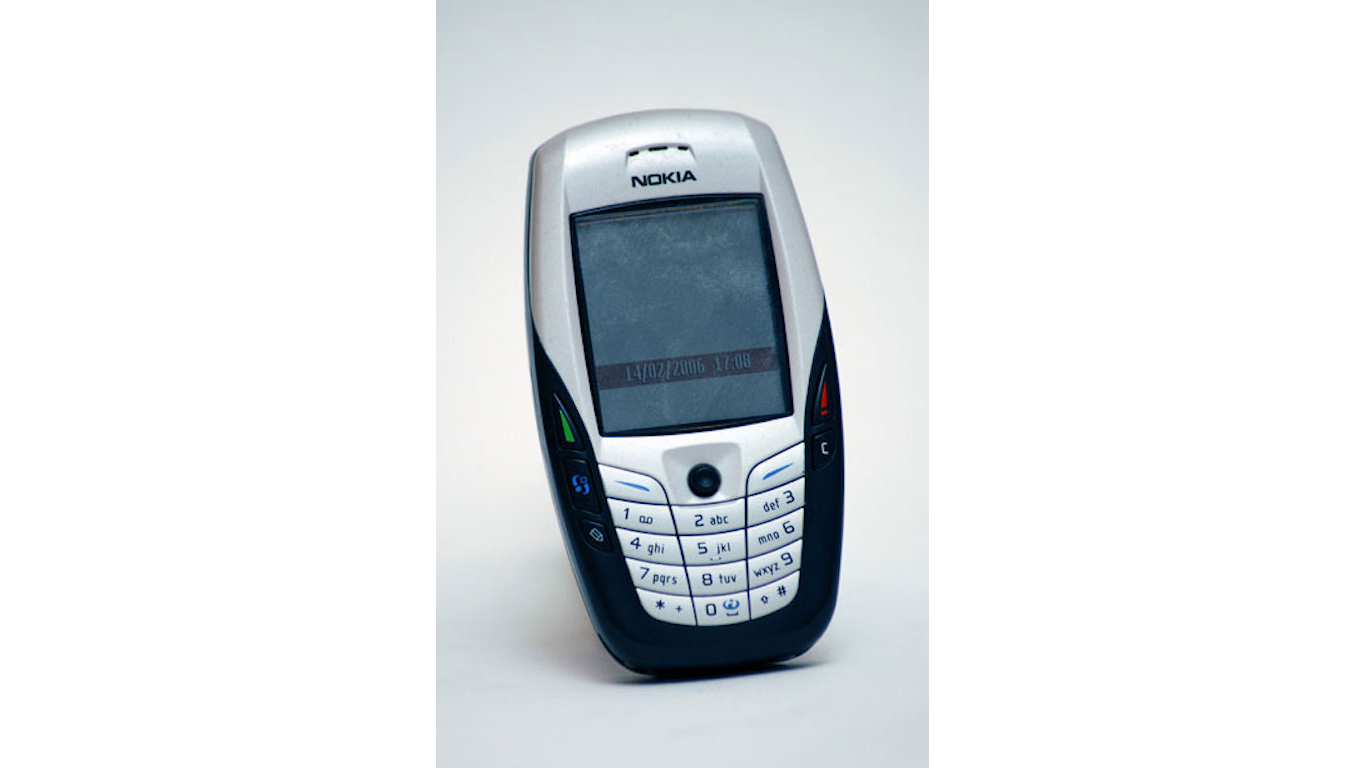
33. 6600
> Manufacturer: Nokia
> Release year: 2003
The Nokia 6600 smartphone was the company’s most advanced model at the time, featuring a camera with video capability, Bluetooth, and a memory card reader.
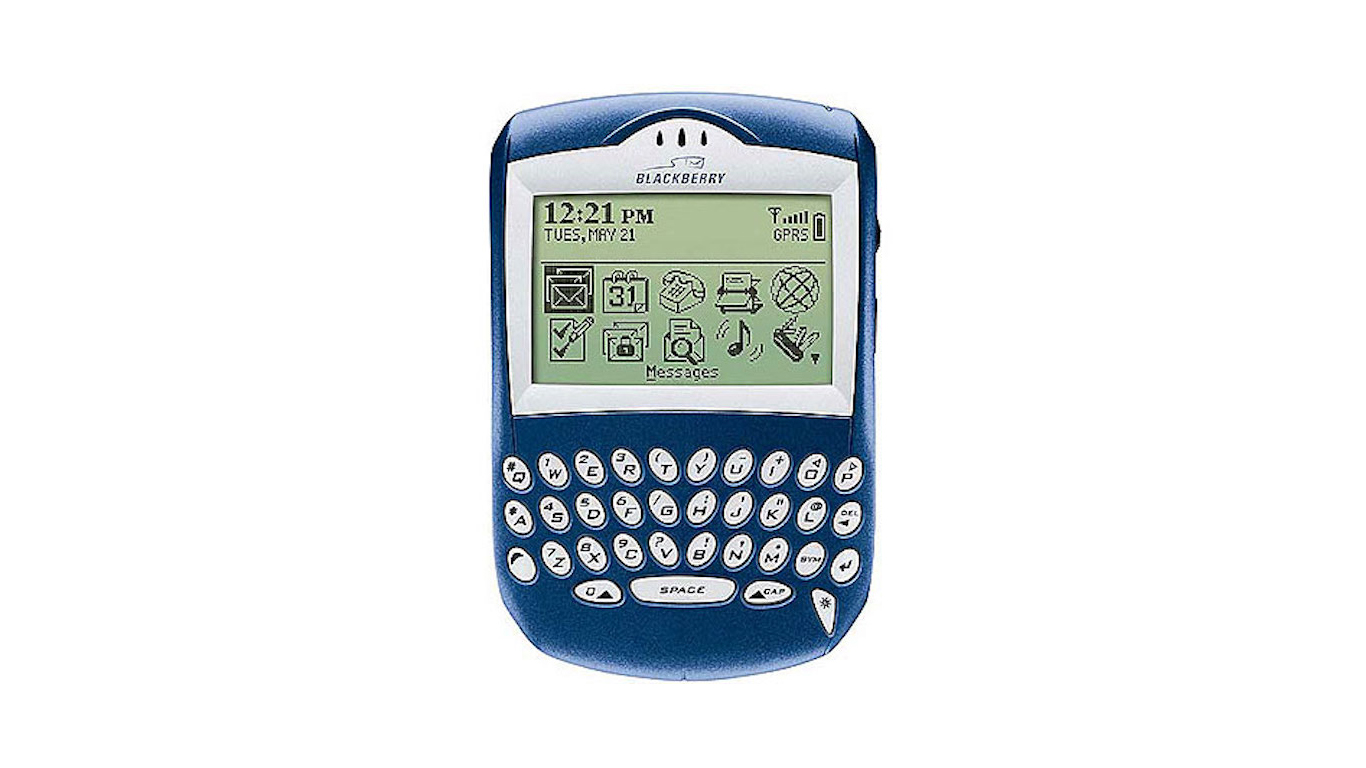
34. BlackBerry 6210
> Manufacturer: Research In Motion
> Release year: 2003
The combination of instant email access and a full QWERTY keyboard in a phone helped the BlackBerry 6210 dominate the business world and influence the smartphones that followed.
[in-text-ad-2]
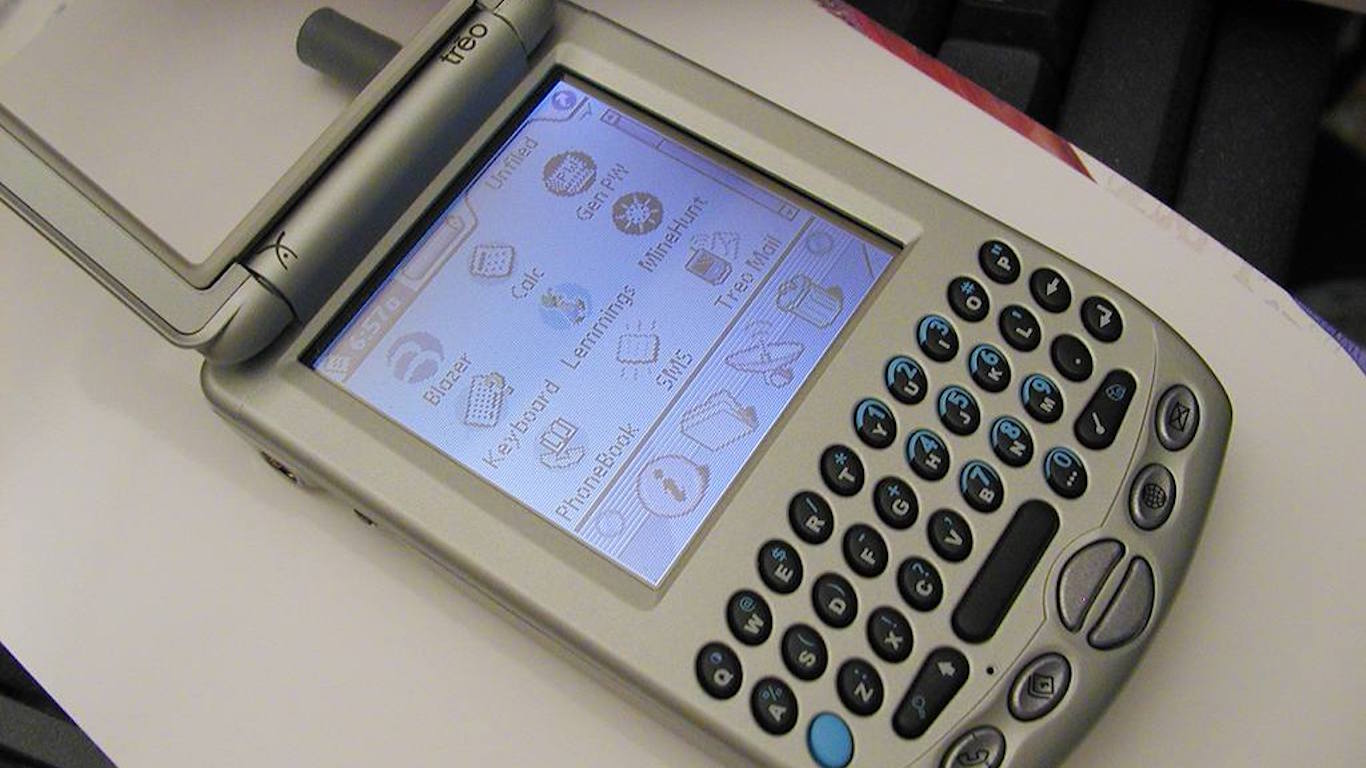
35. Treo 600
> Manufacturer: Handspring/Palm
> Release year: 2003
The Palm Treo 600 had a camera, MP3 capability, Internet access, a unique OS that enabled more than 13,000 applications. The OS influenced many of the smartphones that followed.
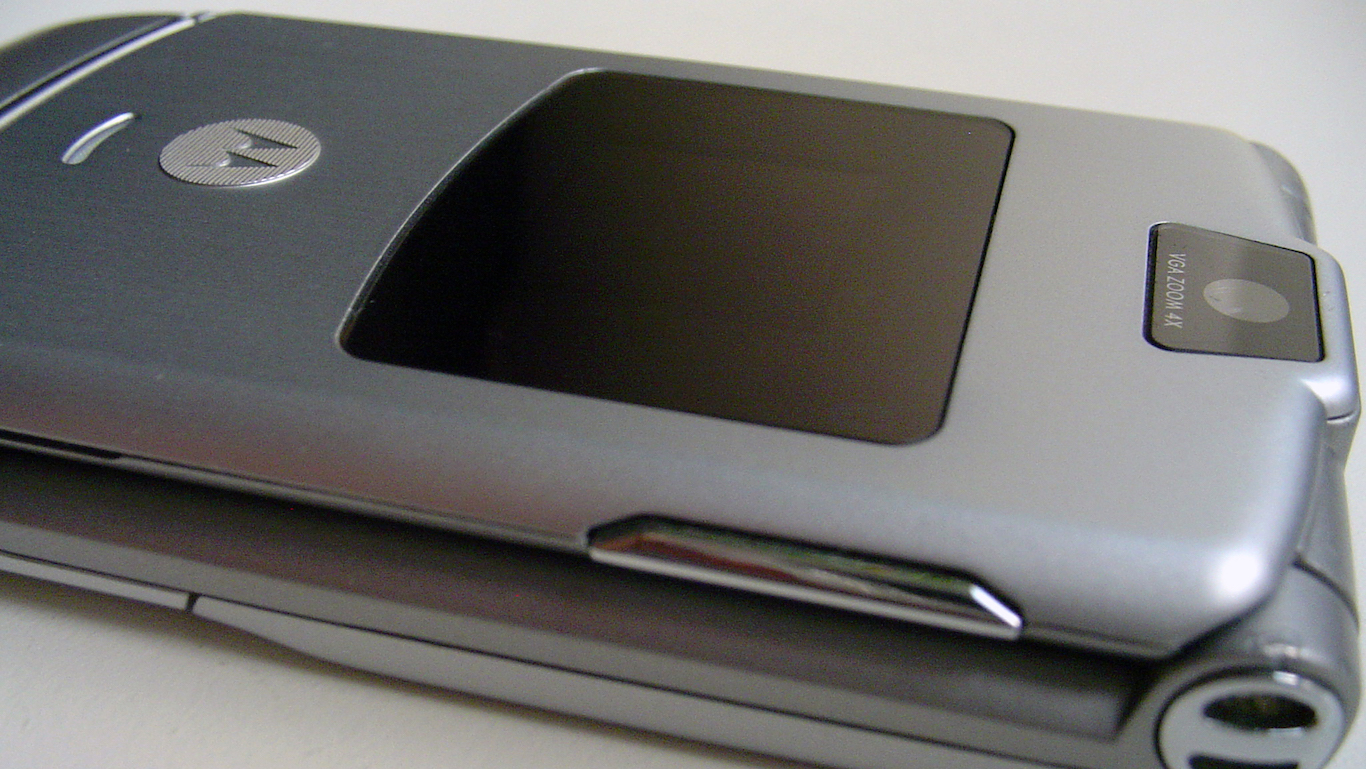
36. Razr V3
> Manufacturer: Motorola
> Release year: 2004
Only a couple of years before the flip phone became outdated, the Motorola Razr V3 left its mark. With an emphasis on aesthetics, the phone was made from aircraft-grade aluminum and sold approximately 110 million units over a four year period.
[in-text-ad]
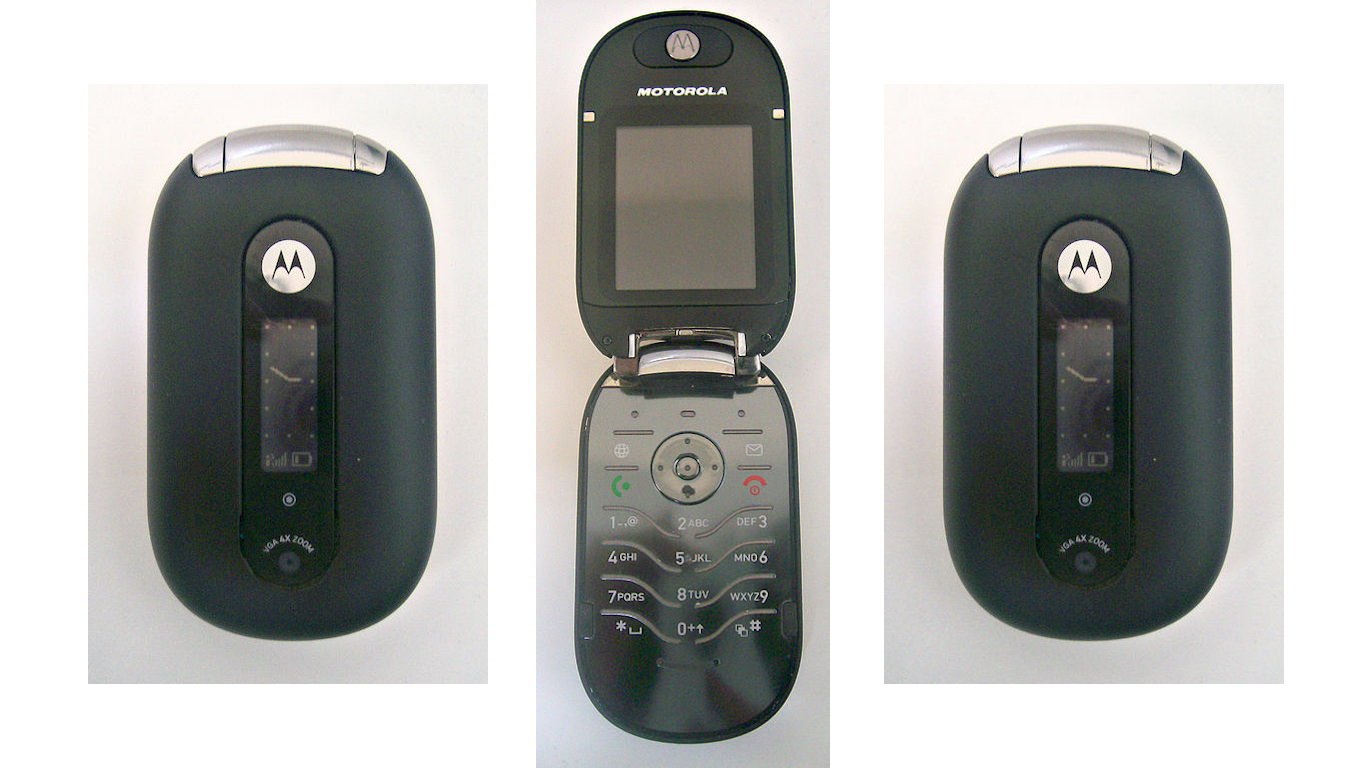
37. PEBL U6
> Manufacturer: Motorola
> Release year: 2005
Flip phones dominated the early 2000s, and the Motorola PEBL U6 was one of the most popular. It sold roughly 15 million units worldwide and helped Motorola maintain the second largest market share of any phone manufacturer at the time.
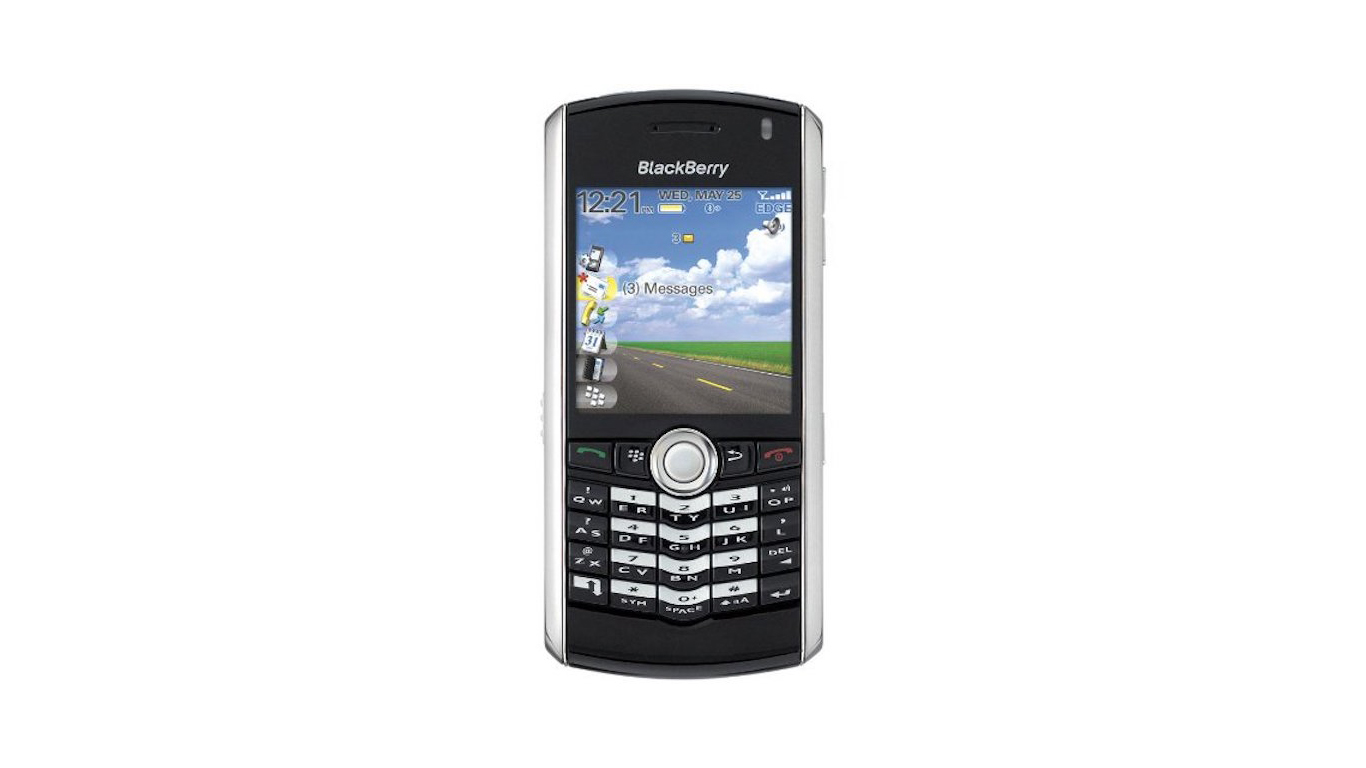
38. BlackBerry Pearl 8100
> Manufacturer: Research In Motion
> Release year: 2006
With a camera and media player, the BlackBerry Pearl was one of the first offerings from BlackBerry — called Research In Motion at the time — to target consumers outside of the business community.
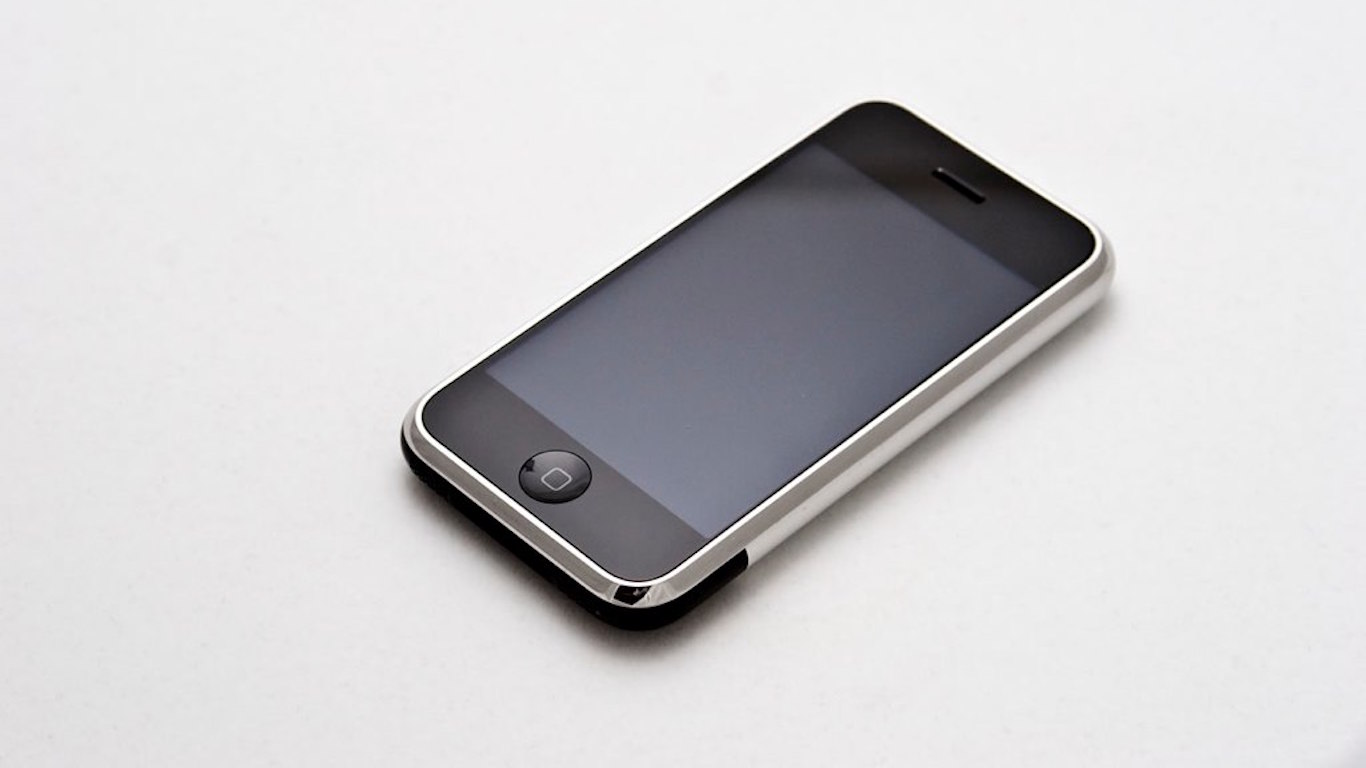
39. iPhone
> Manufacturer: Apple
> Release year: 2007
It is difficult to overstate the impact Apple’s iPhone had on the industry. Though many were skeptical of the iPhone upon its release, the device pioneered both technology and style that redefined industry standards.
[in-text-ad-2]
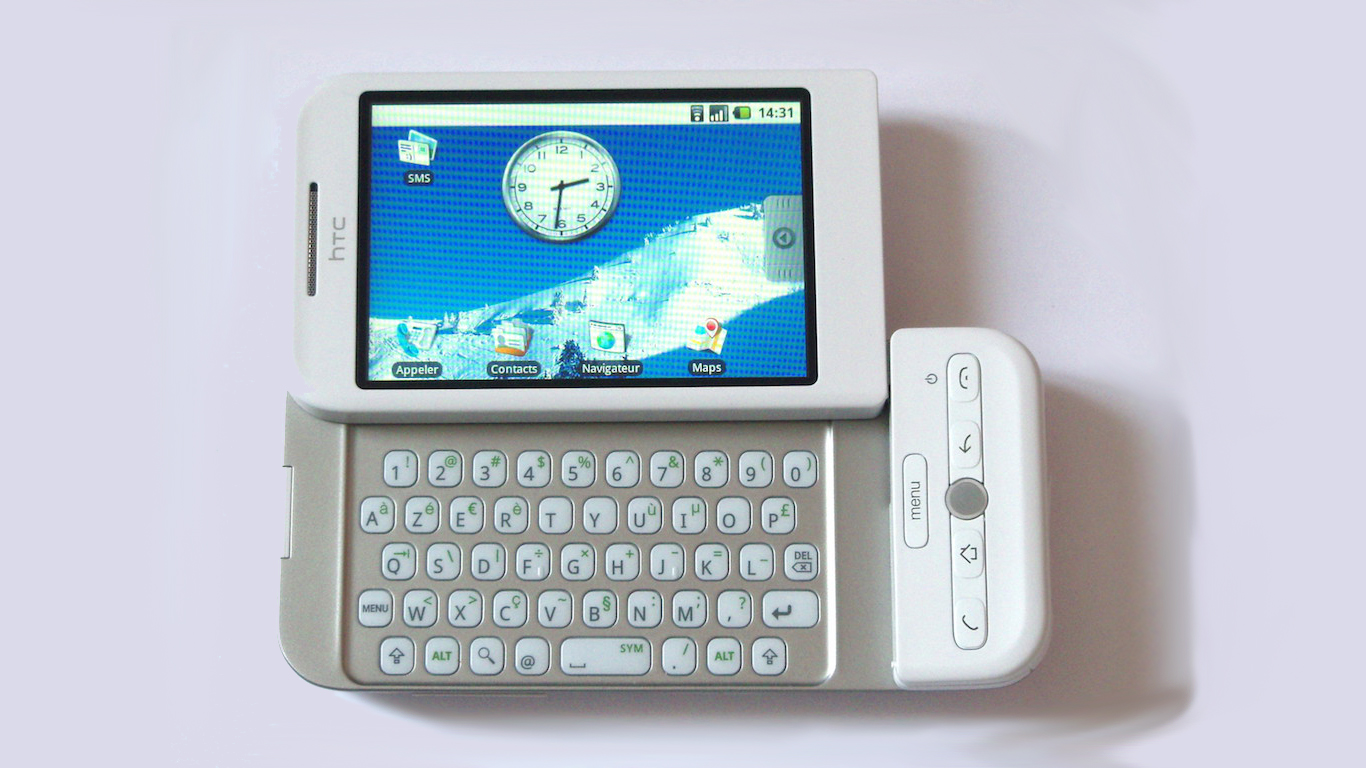
40. T-Mobile G1
> Manufacturer: HTC
> Release year: 2008
Also known as the Dream, the T-Mobile G1 was the first smartphone to utilize the Android operating system. While the G1 was never as popular as the iPhone, the Android operating system is far more popular than Apple’s iOS is worldwide.
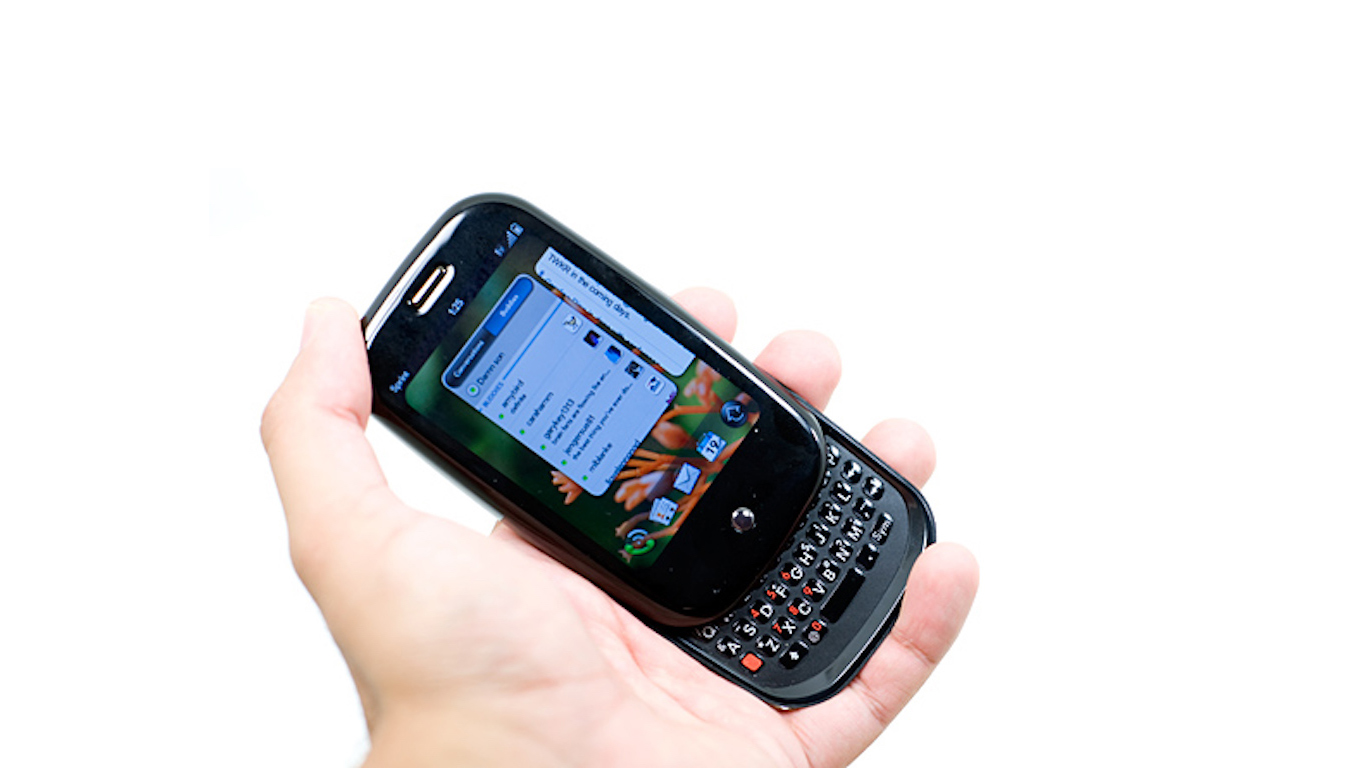
41. Pre
> Manufacturer: Palm
> Release year: 2009
With a slideout keyboard, the Palm Pre was an ideal choice for those looking for smartphone capabilities but who disliked the touchscreen keyboards of iPhones and some Android models.
[in-text-ad]
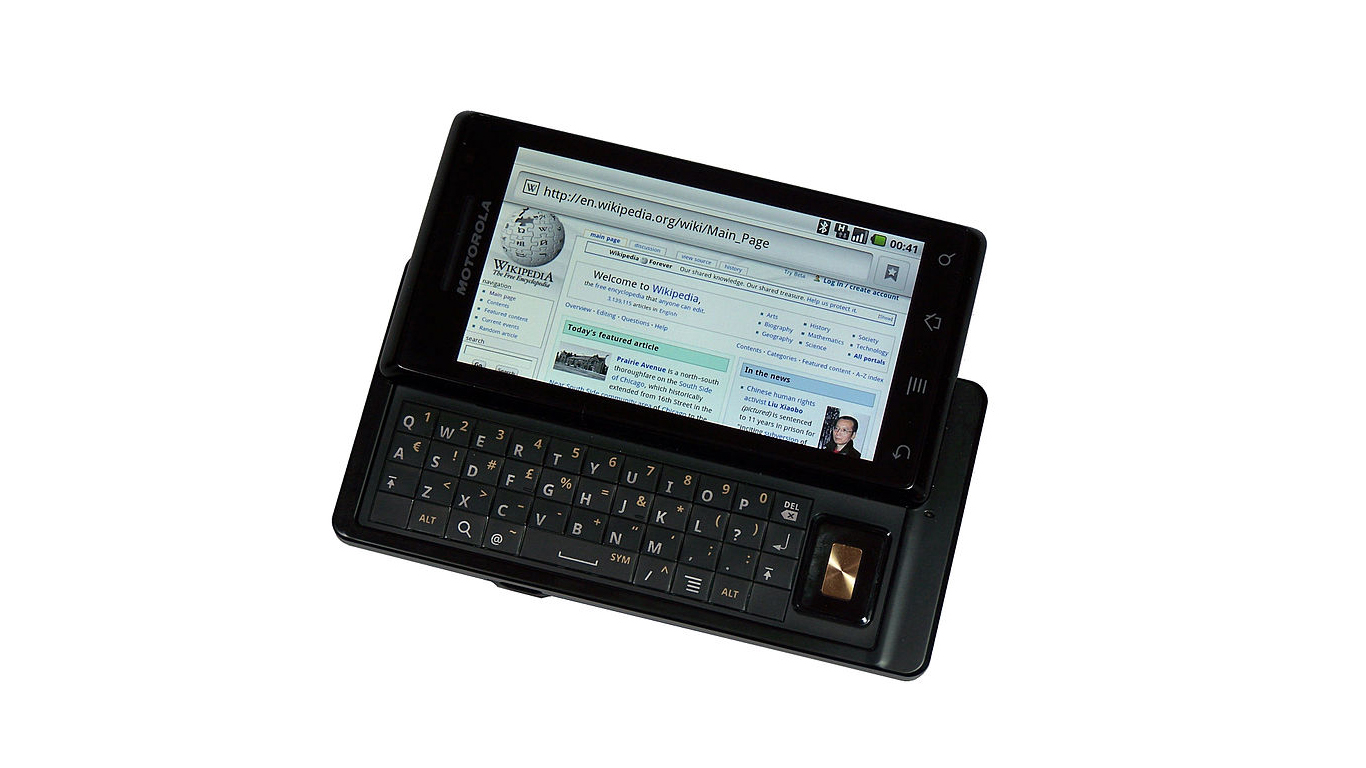
42. Droid
> Manufacturer: Motorola
> Release year: 2009
The Motorola Droid was released in 2009 and marketed as an alternative to the iPhone. The Droid was the first phone to offer turn-by-turn navigation powered by Google Maps.
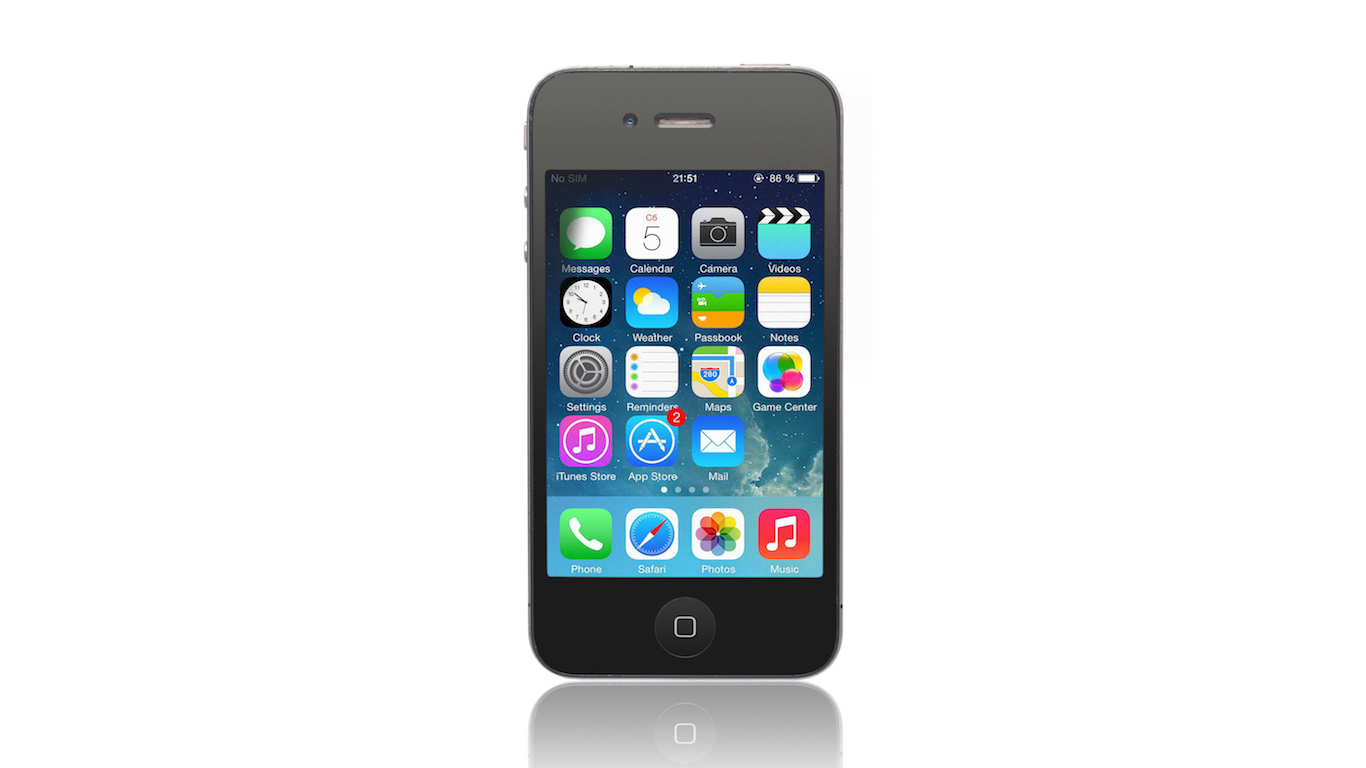
43. iPhone 4
> Manufacturer: Apple
> Release year: 2010
When the iPhone 4 hit the market in 2010, it featured more than 100 improvements over its predecessor, including a better camera and higher screen resolution.
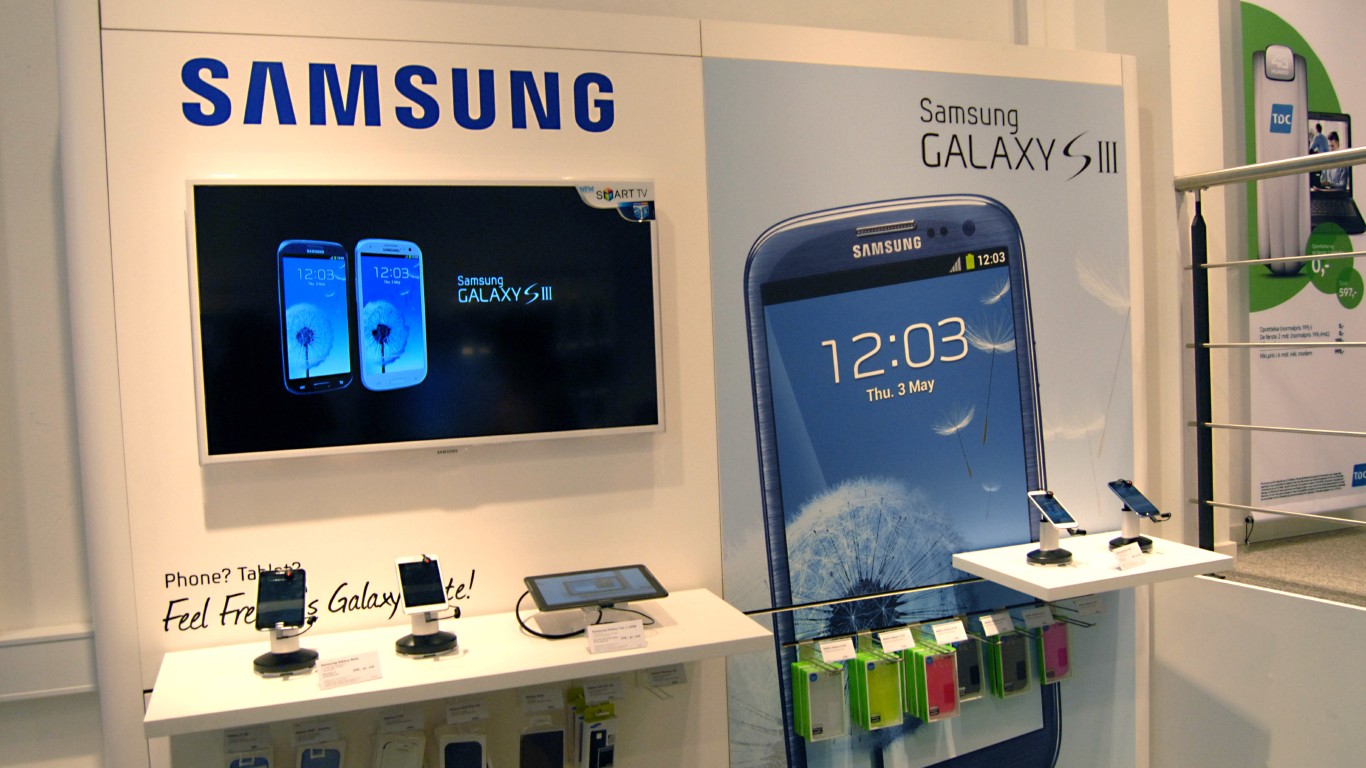
44. Galaxy S3
> Manufacturer: Samsung
> Release year: 2012
The Galaxy S3 was Samsung’s flagship smartphone in 2012. The phone helped propel the Korean company ahead of Apple in the global smartphone market at the time.
[in-text-ad-2]
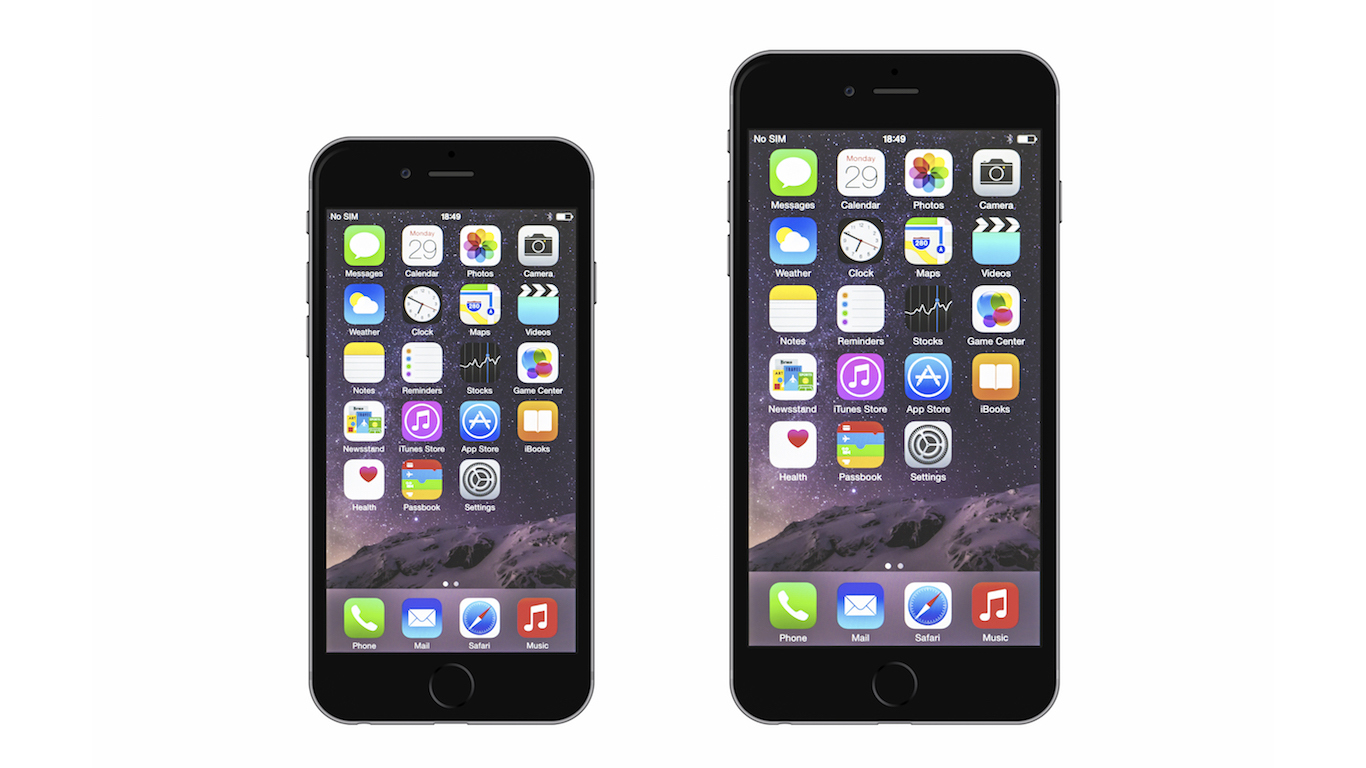
45. iPhone 6
> Manufacturer: Apple
> Release year: 2014
The iPhone 6 is the best-selling version of the popular smartphone to date, selling more than 70 million units in its first three months alone.
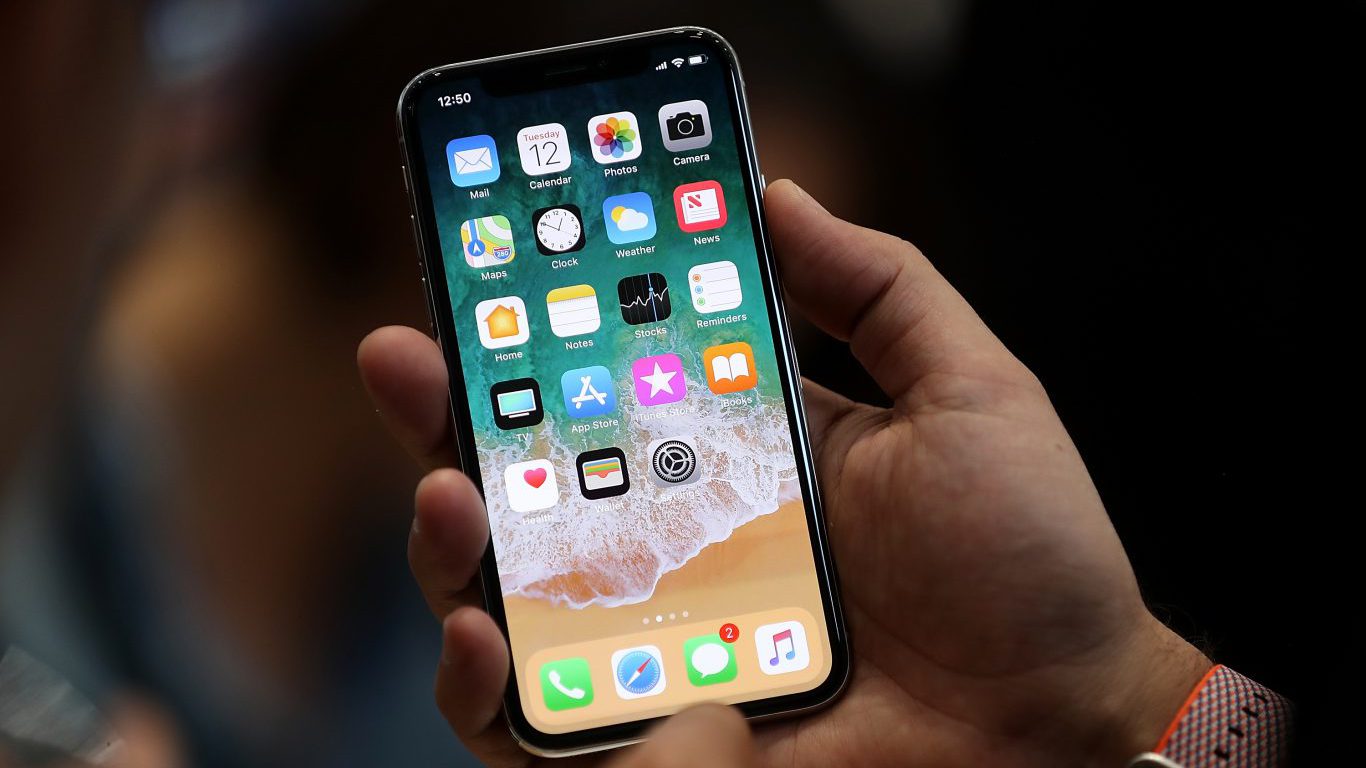
46. iPhone X
> Manufacturer: Apple
> Release year: 2017
Apple’s smartphones continue to get smarter. The company’s latest line, the iPhone X, comes with Face ID. The unlocking system allows the iPhone X to scan a potential user’s face, unlocking for the owner and keeping others out.
[in-text-ad]
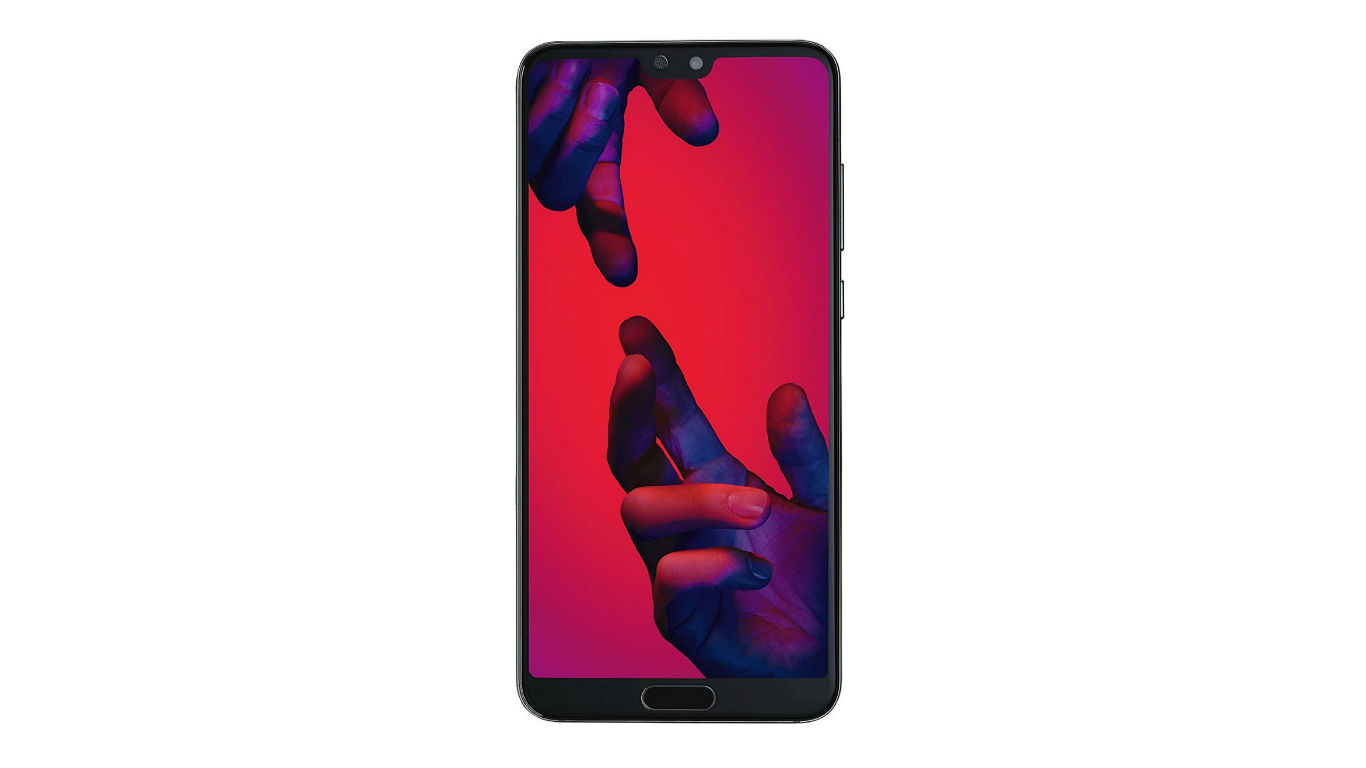
47. P20 Pro
> Manufacturer: Huawei
> Release year: 2018
The Huawei P20 Pro offered three different cameras, long battery life, and a display quality that matches up with its tech rivals.
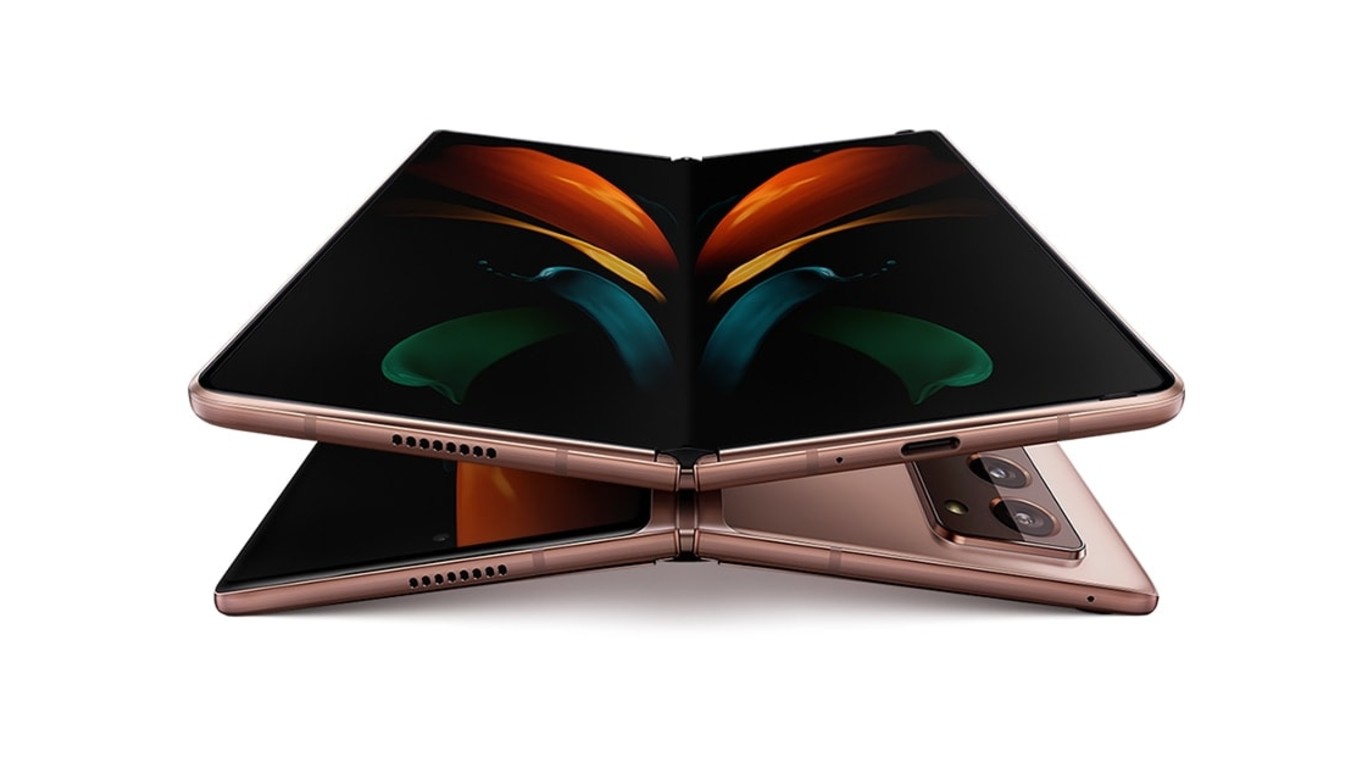
48. Galaxy Z Fold 2
> Manufacturer: Samsung
> Release year: 2020
Samsung released its innovative Z Fold 2 in 2020. The phone has a revolutionary folding display, long battery life, and functions whether it is open or closed.
Take Charge of Your Retirement In Just A Few Minutes (Sponsor)
Retirement planning doesn’t have to feel overwhelming. The key is finding expert guidance—and SmartAsset’s simple quiz makes it easier than ever for you to connect with a vetted financial advisor.
Here’s how it works:
- Answer a Few Simple Questions. Tell us a bit about your goals and preferences—it only takes a few minutes!
- Get Matched with Vetted Advisors Our smart tool matches you with up to three pre-screened, vetted advisors who serve your area and are held to a fiduciary standard to act in your best interests. Click here to begin
- Choose Your Fit Review their profiles, schedule an introductory call (or meet in person), and select the advisor who feel is right for you.
Why wait? Start building the retirement you’ve always dreamed of. Click here to get started today!
Thank you for reading! Have some feedback for us?
Contact the 24/7 Wall St. editorial team.
 24/7 Wall St.
24/7 Wall St.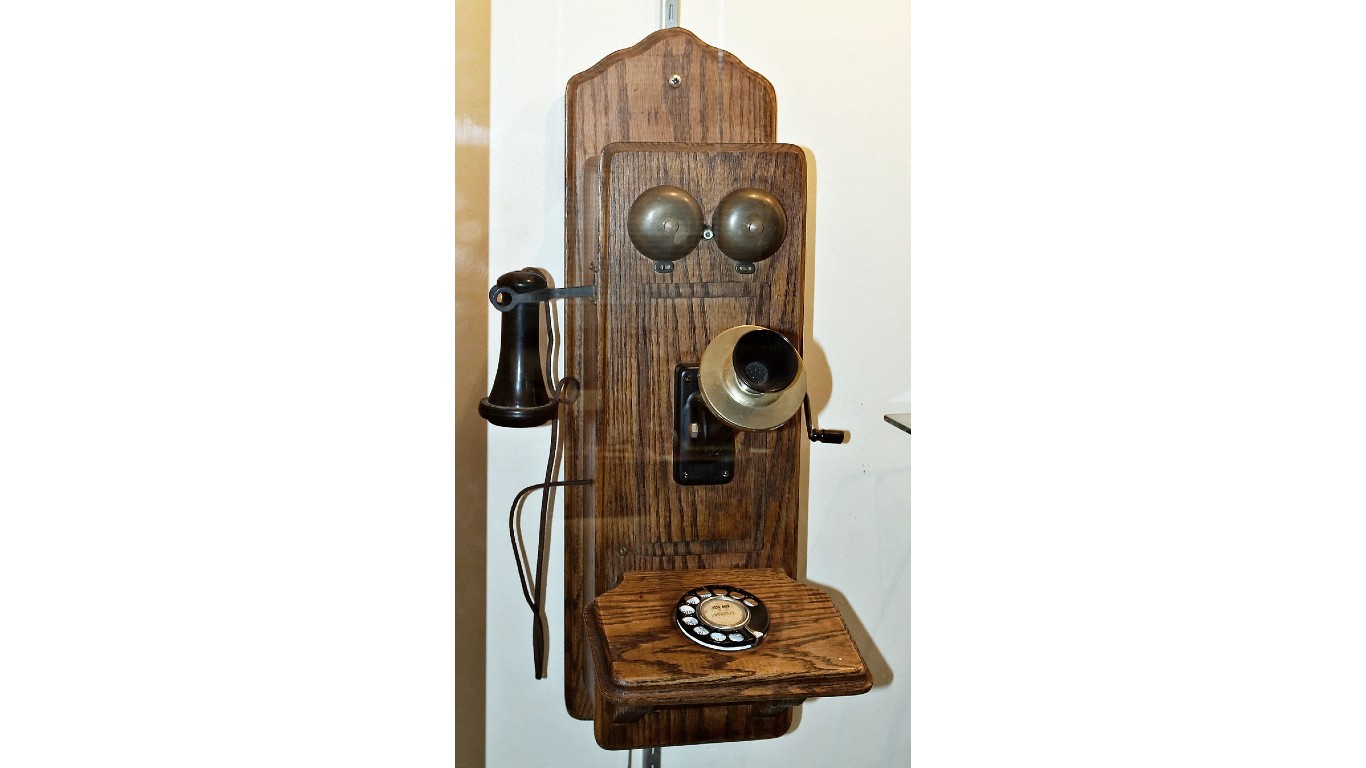
 24/7 Wall St.
24/7 Wall St. 24/7 Wall St.
24/7 Wall St.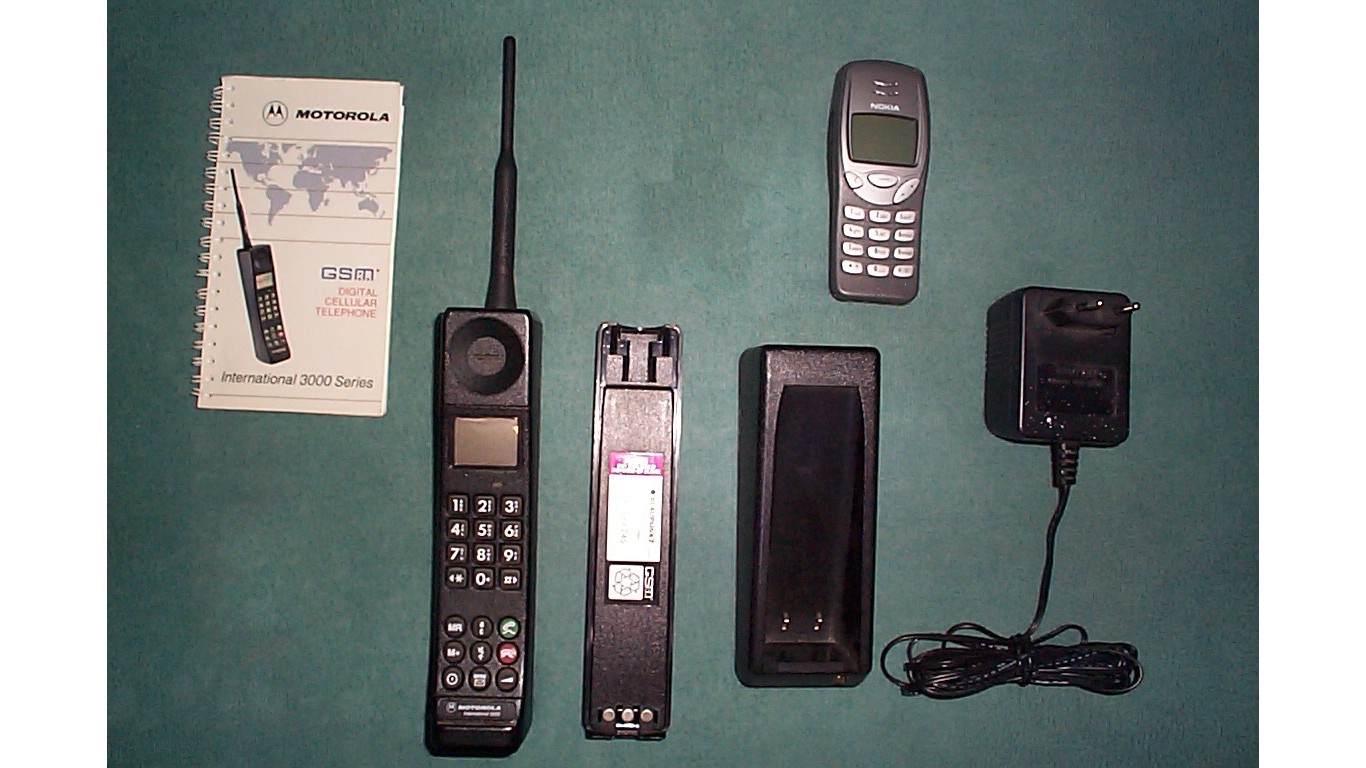
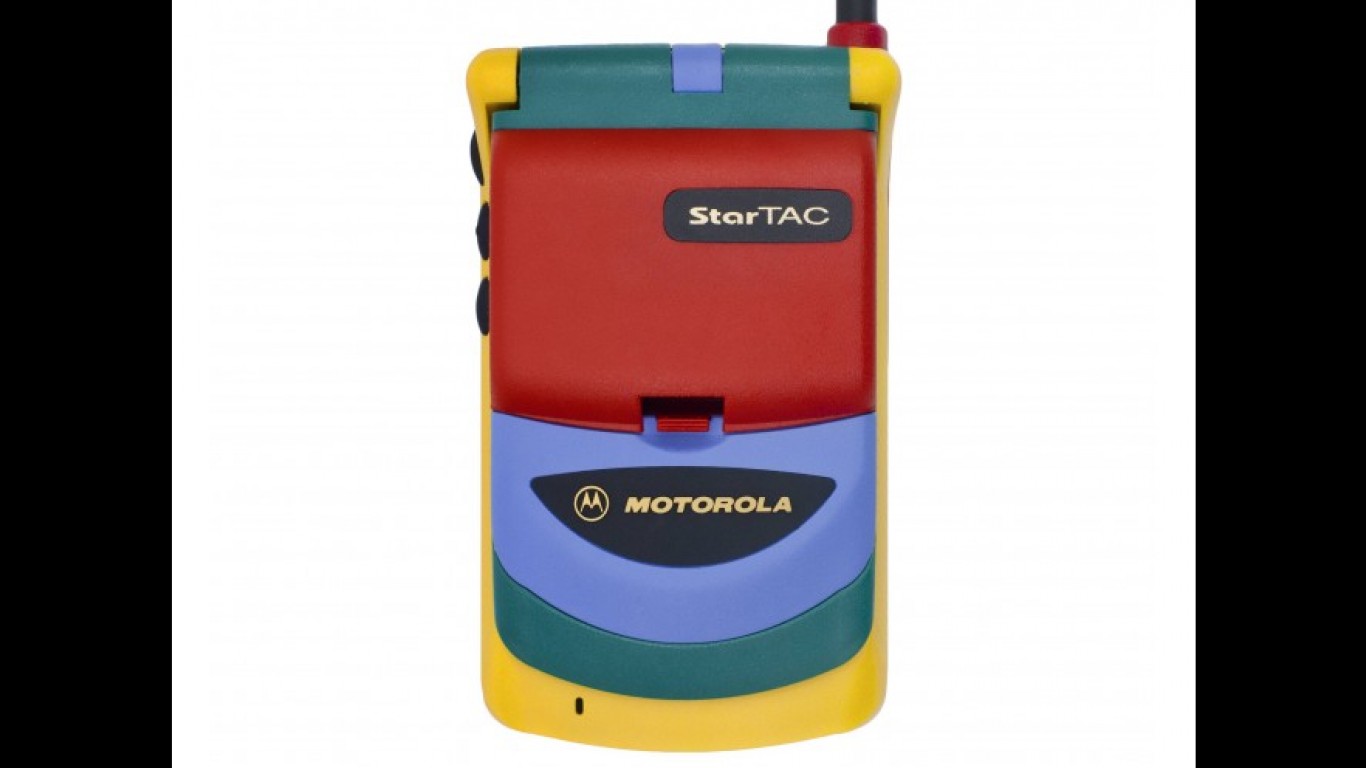
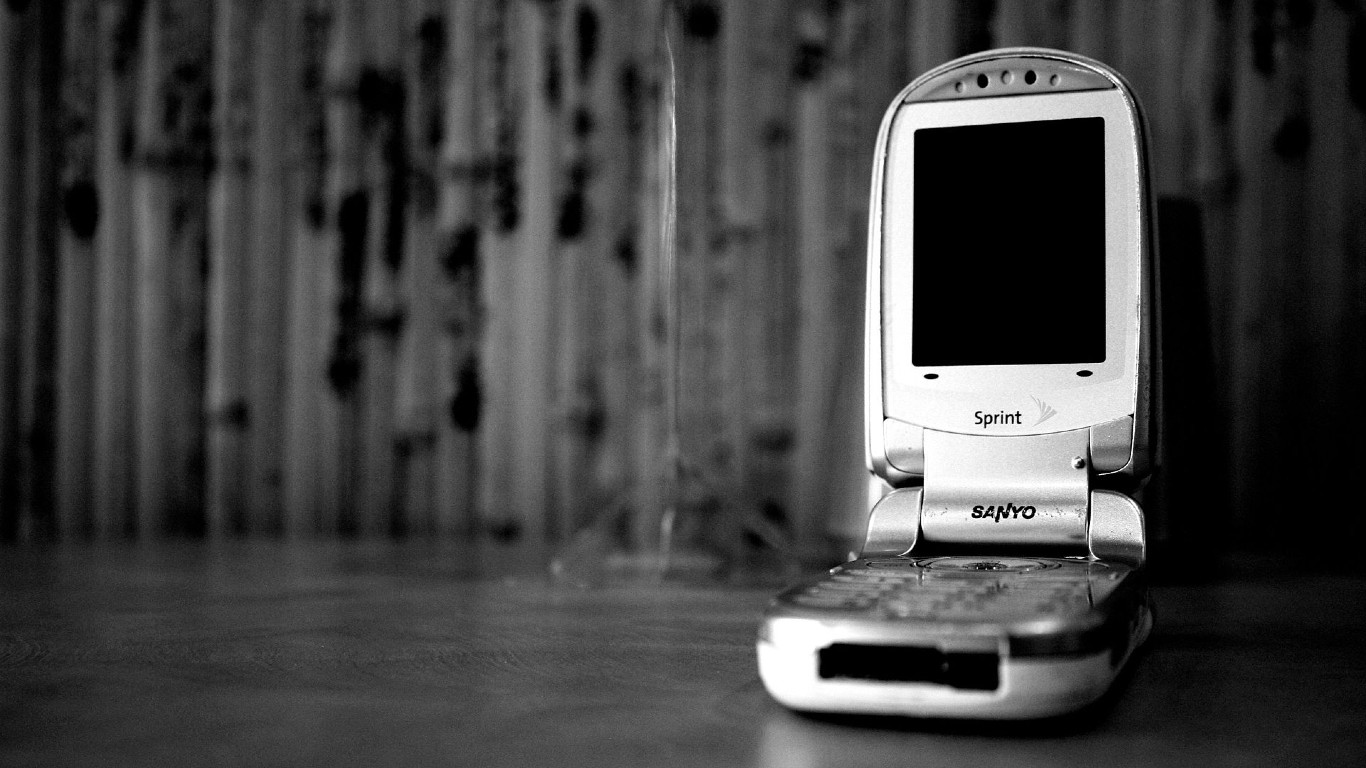
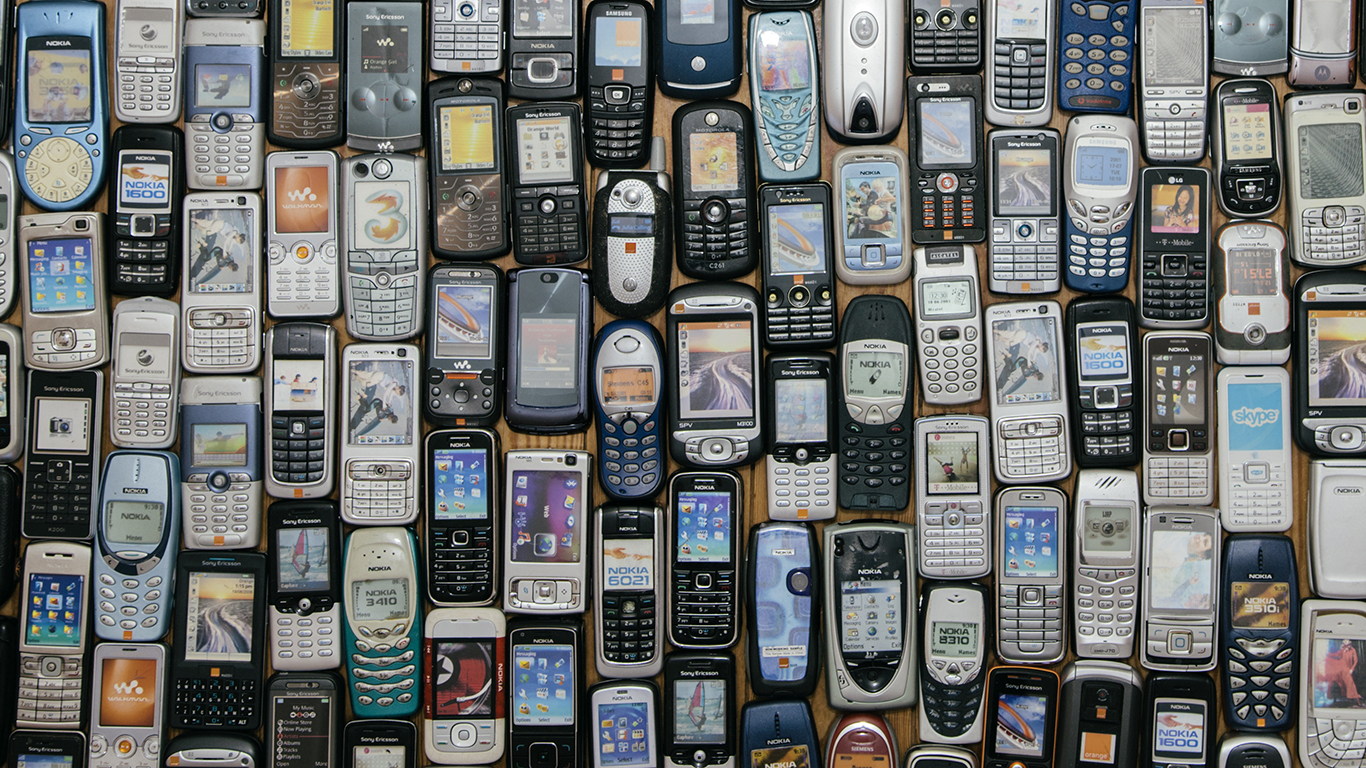 24/7 Wall St.
24/7 Wall St.